
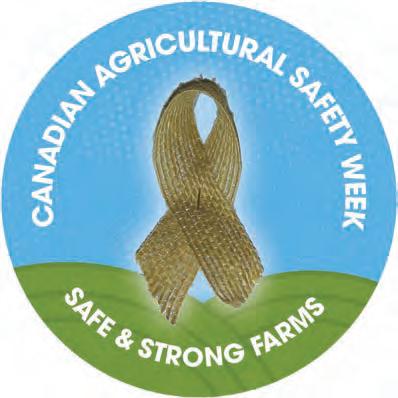

Legislative Assembly
Ken Francis, MLA Kindersley Constituency
SK S0L 1S0
Phone: 306-463-4446
kfrancismla@gmail.com











Legislative Assembly
Ken Francis, MLA Kindersley Constituency
SK S0L 1S0
Phone: 306-463-4446
kfrancismla@gmail.com







In the early part of the last century, the “Better Farming Train” was a unique education and training initiative, a collaboration between William Motherwell of the Ministry of Agriculture (which provided the funding) and Dr. William Rutherford, Dean of Agriculture at the University of Saskatchewan. Trains were a practical way to reach out to farm families who could ill afford the time and expense of travel to the university to learn about advances in agriculture and horticulture.
Every summer between 1914 and 1920, trains pulling between 13 and 17 specially configured cars exhibited the latest in agricultural products, equipment and practices. One car was dedicated to the care of infants and small children, staffed by “competent nurses” so that farm women could fully participate in the day’s activities. Special cars were set up as theatres where faculty from the University’s Department of Extension gave lectures using “lantern slides”. Topics included field husbandry, household science and farm mechanics. Some cars even carried livestock such as horses, cattle, sheep, pigs and poultry.
Visitors to the household science car likely learned about food preservation techniques, while another car dedicated to “Tree Planting” gave instruction for planting farm shelterbelts to reduce soil erosion. The arrival of the Better Farming Train was extremely well attended by farm families eager to better their farms and their livelihoods.
Photo courtesy of University of Saskatchewan, University Archives and Special Collections, Photograph Collection, A-1503, “Better Farming Train - Tree Planting Car” (1921). Courtesy of Gardening of USask Facebook page.



On March 5th, Kindersley RCMP officers located and arrested 22-yearold Austin Heid. Heid was wanted on several outstanding warrants for property related offences as well as for obstruction. He was remanded for court in Saskatoon on March 8th. Kindersley RCMP would like to thank the public for their assistance in relation to this investigation.
In the early morning hours of Sunday, Kindersley RCMP, with Kindersley Fire and EMS
responded to a single vehicle rollover in Flaxcombe. One adult male was airlifted to hospital with serious injuries and Fire and EMS treated other injured parties on scene. The collision remains under investigation by RCMP. Kindersley RCMP would also like to remind the public that its Online Crime Reporting system is now live and can be accessed by computer or mobile device using the website: https://ocre-sielc.rcmp-grc.gc.ca/sas -
for members of KINDERSLEY & KERROBERT COMMUNITY FUNERAL HOMES & CREMATORIUM INC.
to be held at the Kindersley Funeral Home 801 - 9th Street West, Kindersley, SK WEDNESDAY, MARCH 17, 2021 at 2:00 P.M.
This is your opportunity to hear and express concerns. SPACE IS LIMITED EVERYONE MUST PRE-REGISTER TO ATTEND Phone: 306-463-2659 or e-mail: kcfh@sasktel.net All COVID-19 precautions will be followed.
katchewan.
Crimes with no suspects or witnesses can all be reported online such as:
• Damage/mischief to property under $5,000
• Theft of bicycle under $5,000
• Theft under $5,000
• Theft from vehicle under $5,000
• Lost or found property
• Damage/mischief to vehicle under $5000
Over the last week Kindersley RCMP responded to a further 25 calls for service which included, but was not limited to: several speeding complaints, frauds and theft calls.
If you need to report any suspicious activity in your community, please contact the Kindersley RCMP detachment by calling 306-463-4642 or your local police service. Information can also be provided anonymously through Saskatchewan Crime Stoppers by calling 1-800-222-TIPS (8477) or submitting a tip online at www.saskcrimestoppers.com.
Online Crime Reporting can be accessed at: https://ocre-sielc.rcmp-grc.gc.ca/saskatchewan.
JOAN JANZEN joanjanzen@yahoo.com
Curling enthusiasts may have spotted a familiar local face as they watched the Tim Hortons Brier held in Calgary, which began on March 4. The familiar face is none other than Dennis Schoeler from Kindersley, who umpired at the brier all week — following that, he will return to Calgary to officiate at the World Men’s Curling Championship, which will be held April 2 to 11.
“I’m coming back for the Worlds. That’s my first World, and I’m excited about that,” said Dennis, who has been an official at the provincial level for 24 years and has 13 years as a national umpire.
“The best thing about umpiring at this level is that you have the best seat in the house to watch,” Dennis said. Dennis is officiating with a team, and one of those team members is Kevin Glessing from Wilkie. Dennis and Kevin have been friends since childhood and have travelled together to many curling events throughout the years.
“There are six of us, and we work as a team,” Dennis said. “Basically, we supervise the game and do all the measurements and time-outs during a game. We also deal with any ice infractions that occur. Umpires basically run the event once we get there. You get to meet people from all across Canada. That’s what keeps us coming back,” Dennis concluded.
There aren’t any spectators present this time around, and there are numerous regulations that need to be followed.

The volunteer umpires took a Covid test in Saskatoon five days before they left for Calgary and then took another after they checked in their room. Dennis had to wait 24 hours before receiving the negative test results.
“It’s a different experience with Covid, that’s for sure,” he said. “All you’re missing is the crowd noise and spectators. After the game is over, we disinfect all the benches and chairs.”
Dennis and his team put in long days, leaving for the rink at 7:15 a.m. and returning at 10:00 or 11:00 each evening. Nevertheless, Dennis enjoys every minute of it.
“I’m just a curling fan; I curled all my life, and my wife and I attend briers. For me, it is about the renewing of old acquaintances. I know the majority of curling teams; we recognize each other from past events. We’re acquaintances, and we have something to talk about when we get together,” Dennis concluded.






JOAN JANZEN joanjanzen@yahoo.com
Larry McGrath has fond memories of briers and curling championships, especially at this time of year which marks the 50th anniversary of his Canadian mixed championship win in 1971. He and his team also won mixed titles in 1967 and 1968.
“It seems like more of an accomplishment now than it was back then,” Larry remarks as he sits in his easy chair and watches the brier. “At the time, I didn’t think about it that much, but now it brings back fond memories.”
“I was a curling fanatic!” Larry admitted. “I was in the northern brier fifteen times. We came in first in 1967 (Quebec City), 1968 (Winnipeg) and 1971 (St. John, NB). We played ten games each year and won twenty-eight of them. All together, Agnes (Larry’s wife) and I went to 42 briers.”
For as long as he can remember, McGrath has been passionate about curling. He started curling at ten years of age. “When I got to be fourteen, I’d go to Dodsland with my dad every Saturday, and he’d give me the key to the rink, and I’d throw rocks for four hours until he picked me up.”
At the age of thirteen, Larry started his scrapbook collection. “If a brier was held wherever, I’d ask the daily newspaper to send me the article and would put it in my book.” His first scrapbook is dated 1954, and he made 92 more scrapbooks after the first one was complete.
It’s fortunate that Larry’s wife Agnes loves curling, although she wasn’t a competitive curler. While Larry was busy during curling season from mid-October until the end of March, “someone had to raise the fam-



ily,” Larry acknowledged.
As well as competing, Larry spent ten years on the Saskatchewan Curling Association board and was a member of the Canadian Curling Association for four years. After two years of senior curling, “I was forced to quit because of knee trouble,” he added.
Besides his scrapbooks, Larry has been collecting pins since the 1980s. “I have no idea how many there are,” he admits. The pin collection started when a collector gave Larry a half dozen pins to start his collection, and it caught on from there. “We trade pins, and pin collectors were always good to me, giving me pins I didn’t have. I collected pins for more than 30 years.”
Larry’s collection is extensive. “There’s still lots of it in the basement at the farm. I kept every trophy, so there’s about 80 trophies, some special ones. And my son has a brier sweater, and another sweater went to the sports hall of fame in Regina.”
Larry also won three vehicles during his curling years. “I was lucky enough to be on teams that won cars on three different occasions.” There aren’t too many people who have won three vehicles in their lifetime, as Larry has.
As for Larry’s extensive collection, he confesses, “I have lots of stuff but nowhere to put it for public display.” Hopefully, his collection will be enjoyed by curling enthusiasts for many years to come.































LAND FOR CASH RENT TENDER R.M. of Snipe Lake #259 NE 23-25-18 W3 Highest or any tender not necessarily accepted. Tenders close March 21, 2021. Submit tenders to: rhouch@hotmail.com or call 403-854-1420













































JOAN JANZEN joanjanzen@yahoo.com
N Korea: 1.3 million soldiers; US has 1.4 million soldiers.
A man and his wife were sound asleep at 5 in the morning, when the husband felt the soft nudge of his dog’s nose repeatedly pushing his hand. Thinking his dog
needed to go outside, the husband dragged himself out of bed. He put on his robe and slippers, but when he turned oround he discovered his dog was curled up in bed beside his wife. That dog knew how to get what he wanted.
In order to get what she wanted, Yeonmi Park
escaped from her home in North Korea over a decade ago. Yeonmi wanted freedom, and more importantly she wanted food to eat. Now she resides in the United States and enjoys both food and freedom, and uses her freedom to inform North Americans about what is really going on in North

Korea.
Her people are trapped in the country, and are denied any communication with the outside world. They are fed a constant stream of propaganda from their dictator, and dare not oppose him in any way. But recently, a group of North Korean soldiers decided to disobey orders.
North Koreans must join the military for a ten year period, in which time they are not allowed to see their families. Yeonmi said these soldiers are basically labourers, building dams, working on farms with primitive conditions, and working on construction sites with no safety precautions. But after their ten years of service are over they are allowed to return to their families, if they have managed to survive during this time.
During Kim Jong-Un’s leadership, North Korea’s economy has gotten progressively worse. Even the stores which provide for foreigners don’t have basic food supplies, while
North Koreans are starving. The Ambassador to North Korea from Russia complained, as a foreigner, he couldn’t even buy basic groceries at North Korea.
The dictator cast the blame for the sad state of the economy on the congress. His solution involved the 1.3 million active soldiers in the military. After their ten years of service had ended, Kim Jong-Un ordered they be sent to the collective farms and mines to work for the remainder of their lives. As farmers and workers in the mines, these labourers would receive nothing for their labour. This tiny nation has 1.3 million military soldiers. In comparison the United States has 1.4 million military soldiers.
For the first time ever, 1500 soldiers decided to fight for their rights and not follow the orders, resisting the dictator. A coup took place in a city located 35 kms from the capital city.
The younger generation doesn’t have the

same loyalty as the older generation, and these soldiers began firing guns which they had hidden. It is a serious crime to have a gun in North Korea, and they were quickly captured. But they realized it’s better to risk their lives for the cause of freedom than be a slave under a dictatorship. Yeonmi said, “I’m grateful my people are finally realizing how precious freedom is and are paying the price and fighting for it. It was a little seed of hope planted in North Korean’s hearts.” As someone who has experienced life without freedom of speech or freedom to live and prosper, Yeonmi is well aware of its value.
Manyof you in rural Saskatchewan would be quick to agree that the problem is always Regina where the decisions on running the province are made.
Most days, you’d likely be correct.
But when it comes to COVID-19 in Saskatchewan right now, Regina is the problem.
During one three-day stretch last week, the province saw 130 of 329 new cases in the Queen City— 50 out of 98 in single day. Regina also accounted for 30 per cent of active cases —420 out of 1,414.
And while Saskatchewan Chief Medical Health Officer Dr. Saqib Shahab has suggested there is no one reason why cases have been rising in Regina compared with everywhere else in the province, government also recently noted 35 cases of the new more infectious variant of COVID-19 have been spotted in Regina.
So if Regina is the problem, why would the latest COVID-19 restrictions apply equally to Regina that clearly has a bigger problem and is likely in need of further restrictions?
The problem may be that imposing restrictions on just one city may be an
even bigger problem.
Premier Scott Moe’s recently announced a slight easing of his Dec. 19 public health restrictions by increasing household bubbles to 10 people from as many as three different households and by increasing the size of worship services to the lesser of 30 per cent of a church’s capacity or 150 people.
“We are putting our trust and our faith in the people in province,” Moe told reporters at a press conference. “They’re going to have some personal decisions to make in the next number of days and weeks, and we trust that they will make the appropriate ones.”

The news from the United States and elsewhere coming from unreliable Internet sources or news channels of a particular leaning only reinforce whatever message people want to hear.
In other words, it’s really hard for governments to get people to follow their messages. And in the pandemic situation we are in where it’s critical to get everyone to buy in, it’s that much harder.
The problem with the latest restrictions is that even more reasonable people might not view them as consistent, logical or enforceable.
MURRAY MANDRYK Political Columnist
If Shahab is telling us that household spread is the biggest problem in fighting COVID-19, does it truly make sense to expand our household bubbles?
And if the problem remains indoor spread, does it make sense to keep the 10-person restrictions on outdoor gathers yet allow as many as 150 people at an indoor church service? Despite added recommendations to keep the sixfoot social distance and to wear masks, isn’t this just looking for trouble?
Finally, if we are being told we need to keep our distance until we are vaccinated, why not wait with these recent tempting restrictions until we are vaccinated?
Well, Moe’s government likely felt it had to do something — especially given that we winning COVID-19 fight elsewhere.
However, with Regina cases pumping up provincial numbers, there was only so much he could do.
There are a more than a few problems with this approach.
Notwithstanding Saskatchewan’s general approach of co-operation and looking out for one’s neighbour, we live in a world of mass media and social media instantaneous communication.
Is anyone really going to pay attention to the latest recommendation that those 50 years and older keep their bubbles to their immediate households if they now have an opportunity to expand their bubble to the bubbles of their adult children or grandchildren?
Separate restrictions aimed specifically at Regina would be hard to enforce — especially with the rural areas so interconnected to the cities for commerce or social reasons. This would not be like blocking roads into La Loche or restricting visitations on Hutterite colonies. We likely have reason to blame Regina, but the recent Regina outbreak reminds us we are all in this together.

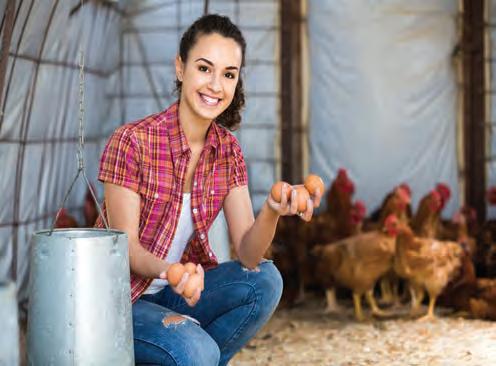
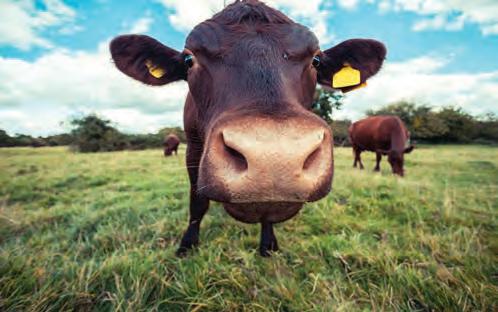
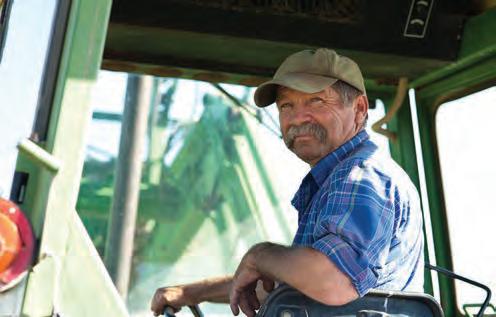

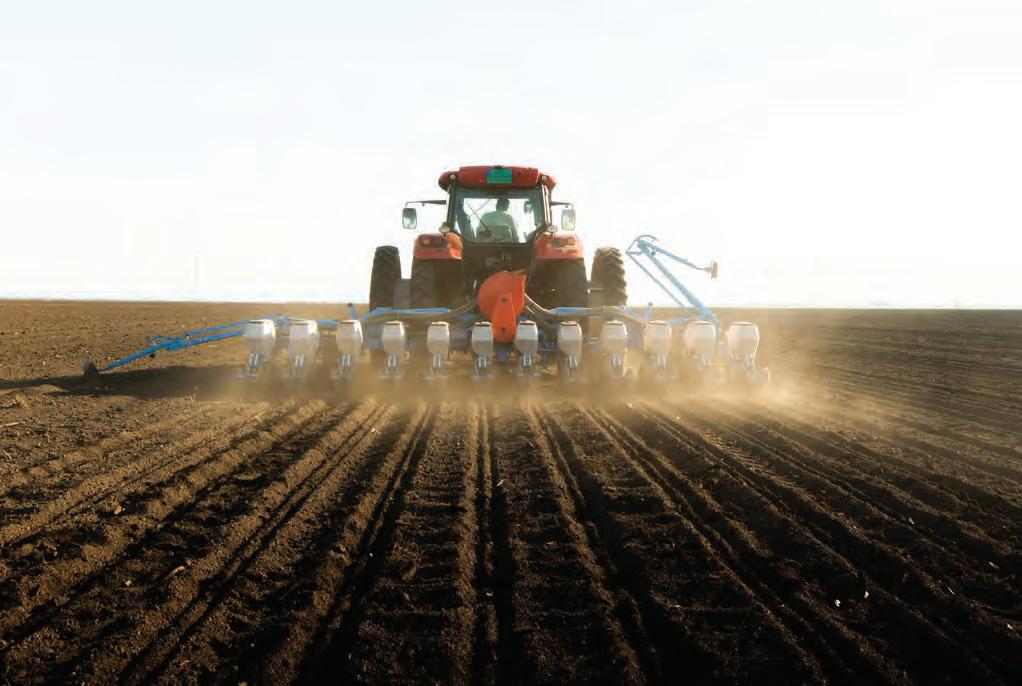
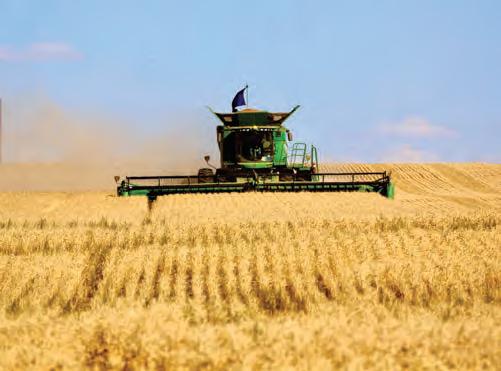
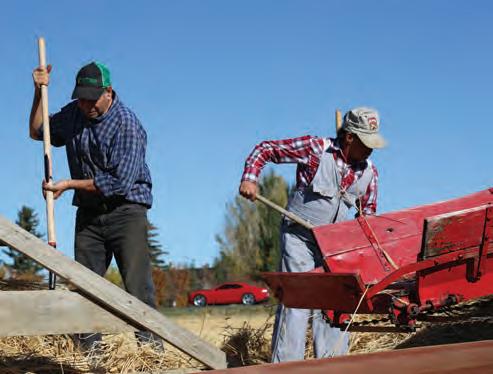

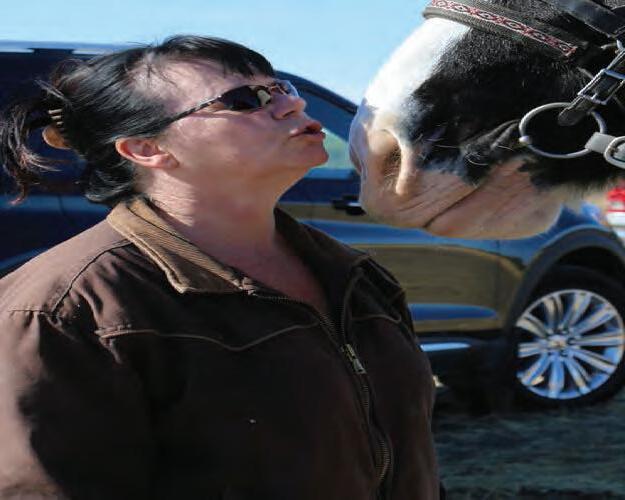
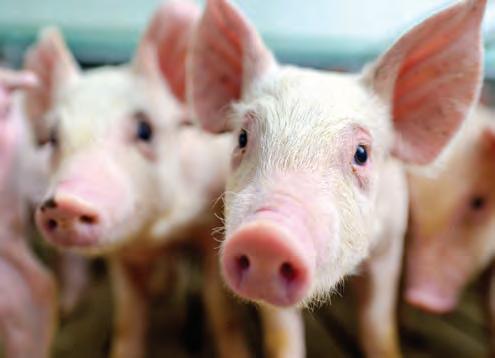
March 14 -20, 2021
WINNIPEG - This March, the Canadian Agricultural Safety Association (CASA) is encouraging all Canadians to celebrate Safe & Strong Farms.
Canadian Agricultural Safety Week (CASW) is an annual public campaign committed to raising awareness about the importance of safe agriculture. In 2021, Safe & Strong Farms: Lead an AgSafe Canada runs from March 14 to 20 and is the final year of a threeyear campaign celebrating farm safety across Canada. The aim of the campaign is to empower farmers, farm families and farming communities to build (2019), grow (2020), and lead (2021) the agricultural industry in safety and sustainability.
Farm Credit Canada is the presenting sponsor of CASW and a dedicated farm safety supporter, including the Back to Ag Program that assists with the cost of adaptive technology for farmers who have experienced a traumatic injury.
“Safety is paramount in any line of work, and we understand the dangers that farmers face each and every day,” said FCC president and CEO Michael Hoffort. “Farm Credit Canada is proud to support CASA in its delivery of important programs that help farm
families stay safe, as well as help farmers return to work after recovering from an injury.”
This year, organizers are focusing on supporting farm safety leadership through resources, safety advice articles, and much more including a free public webinar “Be AgSafe, Stay Rail Smart”, in partnership with CN on March 16. CASA is also producing resources in partnership with CASW supporters Syngenta and TC Energy.
The AgSafe Ribbon campaign also returns for CASW, but with a bit of a different look from previous years. For 2021, the ribbon campaign is going digital and can be shared on social media as a way to raise awareness and start conversations about the importance of farm safety. The digital AgSafe Ribbon can be found on the CASW website at agsafetyweek.ca.
“This year is all about celebrating the leaders in agricultural safety and health,” says Andrea Lear, CASA’s CEO. “Farmers, farming communities, ag businesses, farm safety partners, and other farm safety champions are doing great work keeping Canadian farms safe and strong.”
March 14 -20, 2021





For more than a decade, CASA has been raising awareness about the importance of safety on Canadian farms through CASW, which takes place every year during the third week of March. CASW is presented by Farm Credit Canada. In 2021, CASW sponsors include long-time corporate sponsor Farm Credit Canada, as well as CN, Syngenta, and TC Energy.
Additional information about CASW, including the media kit and resources, and to register for the “Be AgSafe, Stay Rail Smart” webinar is available at agsafetyweek.ca. The media kit contains feature stories, safety advice articles, public service announcements, graphics, and more.
The Canadian Agricultural Safety Association is a national, non-profit organization dedicated to improving the health and safety of farmers, their families and agricultural workers. CASA is funded in part by the Canadian Agricultural Partnership, a federal, provincial and territorial initiative. For more information, visit www.casa-acsa.ca, find us on Facebook or LinkedIn, or follow us on Twitter @planfarmsafety.
Canadian Agricultural Safety Week 2021 runs from March 14-20.





BROCK, SK - Agriculture producers find it rewarding when their offspring want to work full-time on the family farm. Joleen Shea is living testimony of a girl who grew up on the family farm, which she now operates full-time, along with the help of her father, Ron Shea.
Her interest in farming began when she was young. “I’d be the one helping Dad,” Joleen said, describing her younger years. Her involvement in 4H also helped with her interest in agriculture.
After high school, she earned a diploma in Animal Science at Lakeland College and went on to work in the grain industry for several years. “But any time I took a holiday, it was to come back and work at the farm. I always had a foot in the door,” Joleen added.
It’s been almost a year since Joleen decided to work on the farm full-time, but she has a lot of help. “Dad’s still out every day. We start calving at the beginning of April. In the next couple of weeks, we’ll make sure everything is ready to go; then it’s all hands on deck until the end of May.”
Sheady Farms has a herd of 250 commercial cows, and they breed Black Angus and Black Simmental. The operation also includes some crop production to provide feed for the stock.
Besides farm work, Joleen was elected as the new Director for District 7 of the Saskatchewan Cattlemen’s Association (SCA) in October of 2020. As part of the SCA, she recently participated in a Beef and Forage Forum, which is open to any producers to give their feedback to the researchers. “It’s interesting topics, that’s for sure. There’s a lot of new stuff in the industry,” Joleen said.
She noted that farming is always a learning process, and the weather and market conditions are always a challenge. “There’s a lot of stuff that’s out of your control. Some years there are bigger challenges than others, but you control what you can and hope it turns out for the best.”
The year 2020 presented a challenge that turned out for the best. Joleen explained, “We sell quarters and halves of beef; it’s another revenue stream for the farm. But during the pandemic, we noticed an increase in beef being purchased from the farm. We sold out faster than we ever have; it was a nice surprise. Now we’re expanding and doubling what we’ve done in the past because the interest is there.”
Soon it will be all hands on deck at the Sheady Farm, as calving will start at the beginning of April, and Joleen is happy being outdoors and working with the animals - something she always wanted to do.
R.M. of Newcombe
of
#261 SE 35-26-26 W3rd, PT NE 25-25-26 W3rd, PT NW 25-25-26 W3rd Includes 2420 sqft bungalow, 38’ x 66’ cold storage shed, 1x3000 bushel steel bin. Land is leased out for 2021 Crop Year
Refer to: www.edgerealty.ca website under farmland for information on tender or call Brad Edgerton at 306-463-7357.
When is that trespass law going to be proclaimed? When there is an app for that
BRIAN ZINCHUK Local Journalism Initiative Reporter
REGINA – Saskatchewan passed a new trespassing law several years ago, of particular interest to rural residents, but has not yet proclaimed it. One of the rural municipality counsellors taking part in the provincial cabinet “bear pit” session during the virtual Saskatchewan Association of Rural Municipalities convention on March 10 asked what was going on with that.
It turns out, the delay is linked to an app which can be used to ensure you are inbounds with the legislation.
Justice Minister Gord Wyant responded, “You’re correct, we’ve passed the legislation, we’re waiting to proclaim it.
“There’s been a significant amount of collaboration that’s been done with respect to ensuring that we have some public education around the issue to make sure that we have a good communication strategy and there’s been some work being done across ministries with respect to the preparation of an application, so that so that we can have the proper implementation of the legislation. That work is proceeding, and I understand that it’s proceeding quite quickly now, so we’re still very hopeful, but we need to make sure that we have the right vehicle in place to ensure that people can have access to the informa-
tion that they need so that they’re not offending the legislation.
Wyant continued, “The last thing that we would want to do is proclaim the legislation without having the proper tools in place, and while there’s been a lot of work that’s been done, as I say, we’re fairly close, at least that’s my understanding. So we’re hopeful. We know how important it is to people in rural Saskatchewan around this piece of legislation, that’s why we brought it forward. We also want to make sure that when we proclaim it, that the appropriate tools are in place to make sure that it’s effective and efficient. Otherwise, I think we fail. So, you can look forward to some more information on this in the near future, and we’ll continue to work on it as diligently as we can.
Premier Scott Moe added the is ready to be proclaimed. “We will be proclaiming it at some point in time, we do want to ensure there’s the sufficient amount of support infrastructure around this piece of legislation when we do proclaim it. As well, we want to ensure that there’s no unintended consequences that should arise as well and so there’s that last look happening, in that last piece of consultation in which SARM is involved, right now, but we will be moving forward when we can, you know, ensure that those those two pieces are checked.”
of CHESTERFIELD #261
Conditions of Offers:
1. All offers and inquiries to be submitted on or before Thursday, March 25, 2021 at 3:00 p.m.
2. Highest or any offers not necessarily accepted.
3. Persons submitting offers must rely on their own research, inspection of land as to conditions and No.of acres.
4. Deposit cheque for 5% of the offered amount must accompany the offer. Cheque made payable to Edge Realty Ltd. in Trust (cheques will be returned to unsuccessful bidders).
5. No offers will be considered which are subject to financing.
6. Mineral rights not included.
7. Please forward all bids and inquiries to: BRAD EDGERTON - EDGE REALTY LTD. BOX 1324, Kindersley SK S0L 1S0 PH 306-463-4515 • Fax: 306-463-4516 • Email: brad@edgerealty.ca


The Covid-19 outbreaks tested the character of Canada’s meat plants – and they passed
BY SHERI MONK sherimonk@gmail.com
Discovering a new passion is a lot like falling in love for the first time. In the beginning, you just cannot get enough of it, and you wonder what you ever thought about before. And so it was for me when I began reporting on the cattle business – I was insatiable. I happily discovered the discount shelves at bookstores
were full of information on food production. While it was a boon for me, I mourned that agriculture was an unpopular topic right alongside the bargain books on politics and history. What I read chronicled the loss of the family farm, corporate agriculture, the disappearance of the honeybee, GMOs, BSE, and the history of branding. I was so taken with the latter, I actual-

As the 2021 rodeo season approaches, we wanted to reach out to our membership and CCA community members to let everyone know that the CCA board is working with all our wonderful committees and the Government to get back into the arena this summer.
Even though we are unsure of what it will look like at this time, the CCA is determined to have a season and a finals in the fall.
The tentative schedule for 2021 will be posted online soonbe sure to check the website for that information!
Thank you for your patience and understanding as we look forward to seeing everyone back in the arena!
- The Canadian Cowboys Association Board of Directors
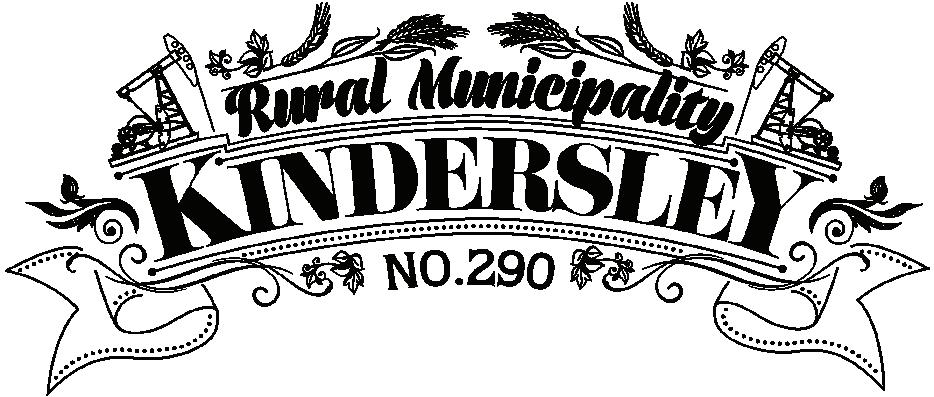
ly had my own newly Saskatchewan-registered brand turned into a tattoo. (On me, not on a cow.)
Despite that period of infatuation, it wasn’t until several years later that I read Upton Sinclair’s classic book, The Jungle. Written in 1906 after the author worked and lived in Chicago’s infamous Packingtown, the book had a profound impact on the American meat-packing industry. If you’re in the livestock business, and this title isn’t on your bookshelf yet, it needs to be.
Sinclair used the industrial climate of Packingtown to detail the tribulations of immigrants desperate to claim the American Dream. He wrote about how they were often swindled by predatory lenders and taken advantage of by corrupt supervisors, about how their children worked in sweatshops, and how women were abused sexually at work. Many would suffer the rest of their days striving to escape a poverty worse than they had left behind in the Old World.
However, when the controversial book was released, the American people paid little mind to the horror experienced by the immigrants – instead they were concerned only with the allegations of widespread and systematic food safety issues. Poor Sinclair was devastated. While the book was well read and people
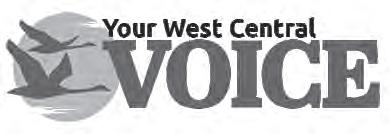






were outraged, it failed to achieve the effect he desired. “I aimed at the public’s heart, and by accident I hit it in the stomach,” he later said.
Still, The Jungle irrevocably changed and influenced the beef industry, not only in the U.S., but also in Canada. It included stories of rats and fecal matter being ground into sausage, spoiled meats being soaked in chemicals to remove the smell, tubercular beef exiting packer doors as though the disease were just a special spice, and of the occasional sorry worker who fell into the rendering tanks and was cremated into lard.
Teddy Roosevelt was president at the time, and although he considered Sinclair a left-wing lunatic, the public outcry prompted him to send two men to investigate the situation. Packingtown was tipped off and staff cleaned the plants day and night for three weeks straight. Despite their efforts, the only claim that couldn’t be substantiated was that men occasionally disappeared into vats to spend their afterlife as lard.
Public pressure resulted in the formation of the Meat Inspection Act of 1906, as well as the Pure Food and Drug Act in 1930 (out of which today’s Food and Drug Administration was born). Interestingly, Sinclair didn’t endorse the legislation because American taxpayers, not the pack-
ers, would bear the substantive inspection fees under the act. In Canada, packers pay for inspection, and this difference is cited as one of the factors creating the uneven ground between the Canadian and American beef business.
There is no doubt this book written as part of a socialist agenda, in its time. (Take the word “socialist” with a grain of salt – keeping in mind the American setting.)
Near the end, there’s a rant nearly as long and academic as John Galt’s in Ayn Rand’s Atlas Shrugged, although the two are, of course, diametrically opposed.
Years after The Jungle was published, a report revealed widespread collusion between the big five U.S. packers, culminating in the Packers and Stockyards Act of 1921. Near the end of the book, Sinclair imagines (through his characters) a much more equitable world 100 years in the future – precisely the time the housing bubble was poised to pop in the U.S., after deregulation allowed the “too big to fail” banks to destabilize the global economy. After all, everything old trickles down to become new again.
The book pits capitalism against socialism, and is written with the absolute black-and-white view that only rabid political partisanship can create. Sinclair saw the book as a story about im-
migrants and the lack of compassion and resources for the lower class. America saw the book as a lesson in food safety. After observing the meatpacking sector’s response to Covid-19, I see it the necessary catalyst in the evolution of a kinder, gentler industry. I interviewed workers from the plants about the outbreaks, and even though I was keeping their identities confidential, they had nothing but good things to say – even reporting collaboration and co-operation between the plants. Workers felt supported by their employers, they felt safe coming back to work once the plants reopened, and they were as committed to the beef industry as any cowboy I’ve ever met.
Perhaps Mr. Sinclair hit his target after all.
Sheri is a journalist based in Alberta specializing in agriculture, science and natural history. sherimonk@gmail.com

BY JORDAN PARKER https://parkerandpictures.wordpress.com/
Despite a worldwide pandemic, Saskatchewan managed to post record numbers for agriculture exports in the province for 2020.
David Marit, Minister of Agriculture, says more product was available to international markets than ever before.
“World demand for Saskatchewan agricultural products like canola, pulses and cereal grains is growing,” says Marit.
“Saskatchewan is diversifying its export markets, most notably for pulses. There was a significant increase in Saskatchewan pulses exported to markets including India, China, Turkey, Bangladesh and United Arab Emirates.”
In 2019 and 2020, the provinces recorded its second and third largest crops ever, producing over 38-million metric tonnes of crop.
“Investments in agricultural research and demonstration allow best practices to drive industry growth,” said Marit. “In January, the provincial and federal governments announced $9.8 million in funding for 39 crop-related research projects through Saskatchewan’s Agriculture Development Fund (ADF).”
Marit says they managed this feat during the COVID-19 pandemic that has kept many indoors since March 2020 because agriculture exports has remained a priority for the Saskatchewan government.
“Growing agricultural exports is a
strategic priority for the Saskatchewan Government and we’ve been working towards our targets since the growth plan was first announced,” he says.
“Throughout the COVID-19 pandemic, the Saskatchewan and federal governments committed to supporting open and stable global supply chains by ensuring agri-food products moved efficiently, without disruption, through our transportation system.”
Due to the virus, less products from other areas were being produced. This allowed more room on railways for Saskatchewan product.
“This made it more efficient to trade and transport agricultural products,” said Marit. “2020 strengthened Saskatchewan’s reputation as a trusted, safe, stable supplier of high quality agriculture commodities and value added products.”
He said Saskatchewan remains on track to meet their Growth Plan goals of “growing agri-food exports to $20 billion and agriculture value-added revenue to $10 billion by 2030.”
“Saskatchewan will continue to diversify its export markets and work on trade relationships in priority markets. Asian markets continue to be important for Saskatchewan agri-food export growth due to the rising middle class and high population growth. In 2021, the Government of Saskatchewan is opening three new trade offices in India, Japan and Singapore to complement the existing office in China.”
Agriculture is one of Saskatchewan’s largest and most hazardous industries. Incidents occur more often between seeding and harvest, and can cause needless suffering and consequently reduce farm revenues.
On average, 13 people are killed on Saskatchewan farms each year. Of these fatal injuries, 75% involve machinery such as grain trucks, semis, tractors and combines. Most incidents occur in the farm yard and of all serious injuries that happen, 14% involve youth.
(Statistics provided by the Saskatchewan Farm Injury Surveillance Program at the University of Saskatchewan.)
Everyone can do their part to help make Saskatchewan farms safer. Some tips to remember while farming include:
• Be sure to replace all guards and shields following maintenance and repairs. A few extra minutes might save your life or a limb.
• Watch for overhead lines when moving equipment, augers, bins, and when loading grain trucks and semis.
• Ensure employees and others helping on the farm are properly trained.
• Change jobs periodically or take a short walk to help you stay focused.
• If youth are recruited to help with farming, make sure the activities are age appropriate and the youth are properly trained and supervised.



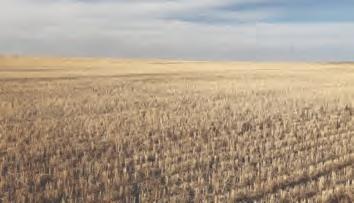


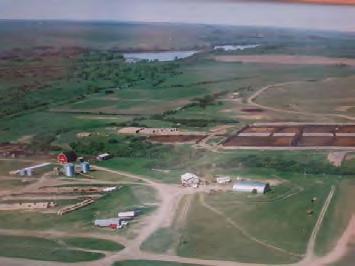
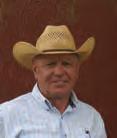






Electrical • Instrumentation • Trenching Automation and Control • Solar Systems
Automatic Generators for Home and Business
BaumaLight PTO Generators
DeeJay Ristau: 306-628-8100
deejay.ristau@hdre.ca
Head Office: Hwy 21 South, Leader, SK
hdre.ca


DeeJay Ristau: 306-628-8100
deejay.ristau@hdre.ca
Head Office: Hwy 21 South, Leader, SK


Cody Silverthorn: 306-736-7870
cody.silverthorn@hdre.ca Field Office: Glenavon, SK


Cody Silverthorn: 306-736-7870
cody.silverthorn@hdre.ca Field Office: Glenavon, SK



Saskatchewan Stock Growers Foundation (SSGF) is pleased to announce it has been awarded $3.4M from the Weston Family Foundation Prairie Grasslands Initiative to collaborate on one of the largest prairie grasslands conservation efforts in Canadian history.
“Native grasslands are the most threatened terrestrial ecosystems in Canada. They are the last refuge for 31 species at risk, and an important forage resource for Saskatchewan’s cow-calf sector, explained Ray McDougald SSGF Chair. “We are building on the success of Species at Risk Partnerships on Agricultural Lands’ first five years to achieve real environmental outcomes―projects that enhance the grasslands and species at risk habitat, and also increase the viability of ranching, enabling a younger generation of ranchers to continue caring for the prairie.”
SSGF General Manager Wayne Hellquist said, “The Weston Family Foundation invited a number of organizations to submit proposals to celebrate, steward and protect Canadian prairie grasslands. Our proposal was selected for including a variety of partners that will ensure a holistic and multi-faceted approach to achieve the maximum impact for our project stakeholders’ efforts.”
“We have an opportunity now to protect the Canadian prairie
grasslands for future generations,” said Weston Family Foundation Director Eliza Mitchell. “We’re launching this initiative to bring together a diverse group of conservation and agricultural organizations to accelerate the adoption of sustainable approaches to protect and restore biodiversity in this unique landscape.”
“We established SSGF as a charitable foundation and land trust to conserve agricultural lands, advance education, relieve poverty and assist victims of disasters,” said McDougald. “As the first and only provincial agricultural and conservation organization based in Saskatchewan, and the first to offer term easements, SSGF has a specific focus on conserving lands.” He added, “Partner contributions make this a $7M project. The Foundation will use this funding to fill a growing need in the ranching community for voluntary, private-sector options for agricultural land conservation.”
New generation Saskatchewan cattle rancher Chay Anderson added, “We believe that in the longrun, a successful ranch and healthy grasslands are directly related. Areas with species at risk and grasslands that require rejuvenating require years of management. Engagement with the ranchers and managers of the grasslands is crucial to understanding the local animal habits and tendencies to create an accurate plan for protecting the
species that play critical roles in a healthy ecosystem.”
About the Weston Family Prairie Grasslands Initiative: The Weston Family Prairie Grasslands Initiative is a five-year collaboration to celebrate, steward and protect one of Canada’s most ecologically valuable and threatened ecosystems. Nearly $25M has been committed by the Weston Family Foundation to five organizations to accelerate the implementation of sustainable practices and achieve landscape-level impact: Nature Conservancy of Canada, Ducks Unlimited Canada, Saskatchewan Stock Growers Foundation, Grasslands National Park (Parks Canada), and Meewasin Valley Authority. Each organization brings additional funding and in-kind donations for a total of $70M going toward this collaboration over the next five years. The Initiative aims to improve species-at-risk habitat, enable wildlife movement, expand the amount of land protection in the prairies, and ultimately increase long-term ecological and economic stability. Dozens of partners will support this work that will affect nearly four million acres of priority native grasslands in one of the largest prairie grasslands conservation efforts in Canadian history. More information about the Weston Family Prairie Grasslands Initiative can be found at westonfoundation.ca.

The strength and resilience of Saskatchewan has been on display like never before in the past year. Just as we have all been helping our neighbours by supporting local businesses, the Government of Saskatchewan has also been supporting those businesses and protecting the jobs that they have created through a number of programs. If you are one such employer, I would encourage you to apply for one or more of these support programs as many of the application deadlines are approaching soon.
The Saskatchewan Small Business Emergency Payment (SSBEP) has now been extended for February and March 2021. Eligible businesses, like retail stores or restaurants, who have been ordered to temporarily close or scale-back operations through a public health order, could receive up to $5,000 per month that can be used for any purpose. The application deadline is April 30, 2021.
The Strong Recovery Adaptation Rebate (SRAR) reimburses eligible small businesses for investments made to adapt their business to operate during the COVID-19 pandemic. Financial assistance includes a payment of up to $5,000 for 50 per cent of total eligible business-adaptation investments made by the applicant prior to February 28, 2021. Eligible expenditures include establishing physical barriers or reconfiguring space to operate safely, providing services through digital tools, and shifting to delivery or curbside services, including third party delivery fees. The application deadline for the SRAR is March 31, 2021.
The Re-Open Saskatchewan Training Subsidy (RSTS) is also available until March 31, 2021. This temporary training subsidy provides businesses with financial support to train employees as they adjust to the impacts of the COVID-19 pandemic. The RSTS reimburses eligible private-sector employers 100 per cent of employee training costs up to a maximum of $10,000 per business.

We have also announced a second offering of the Saskatchewan Tourism Sector Support Program (STSSP) for eligible tourism businesses in the accommodations, attraction and tours, events, and major event facility sectors that have seen a 30 per cent drop in revenue as a result of the pandemic. Applications will be available March 8 and the deadline to apply is April 30, 2021
This year, Crop Insurance coverage will reach a record level due to higher commodity prices and increased yield coverage. March 31, 2021 is the deadline to select insured crops and coverage levels or make additional changes to Crop Insurance contracts. Producers need to also apply, reinstate or cancel by this date. For more information about the 2021 insurance options, call 1-888-935-0000 or visit www.scic.ca.
For more information on all of the provincial and federal government supports available, please contact our office, the Business Response Team at 1-844-800-8688 or visit www.saskatchewan.ca/covid19-businesses.

BY SHERI MONK sherimonk@gmail.com
During the first wave of the Covid-19 outbreak, April was hard on Alberta’s two biggest beef packing plants, JBS in Brooks and Cargill in High River. To get the outbreaks under control, both plants had to shut down for a twoweek period. In total, there were more than 600 cases at JBS, and nearly 1,000 at Cargill – crowning it the worst outbreak in Canada since the start of the pandemic.
Last month, the Olymel pork processing plant in Red Deer experienced an outbreak with more than 500 workers infected. That plant too was closed for two weeks to contain the spread.
Harmony Beef in Balzac has experienced three separate, but much smaller outbreaks. The Cargill plant in Guelph, Ontario had nearly 10 per cent of its workers test positive, and plants in the U.S. have been hit hard.
In total, at least seven deaths have been attributed to the meat plant outbreaks in Alberta, with the youngest victim being in their 30s.
Packing plants, by necessity, are designed to maximize space – it’s a meat disassembly line, and before Covid, workers were side-by-side, often elbow-to-elbow.
M, whose true identity is being protected, works at the JBS plant in Brooks. They said before the virus was discovered in Canada, it was business
as usual at the plant until mid-March, long before the first case.
“That’s when they started putting in social distancing, putting signs up, people had to wear masks, and they had sanitization stations for your hands. When you walked into the building, you were checked for temperature.”
With hundreds and hundreds of workers showing up for each shift, taking everyone’s temperature was time-consuming, but necessary.
“I remember the long lines of traffic coming into the plant because everyone had to be checked,” M said. “They used to take the body temperature manually, with a held thermometer, but they put in the ones that you can see on the monitor when you walk through security. It’s very high tech.”
T, another worker at the plant, actually contracted Covid-19 at work and is still struggling with the consequences of the virus.
“I was really sick. I didn’t think I was going to make it. It was a rough time. There are lots of side effects. It’s a way of life for me now.”
When the outbreak began, there was a range of reactions among workers. Some were in denial, others still saw friends socially. Some were afraid to come to work, and others were worried about the future of the plant.
“Some were afraid, yes. There’s no two ways
1) NW 6-32-23-W3rd 160 acres approximately Closing date for Tenders is April 2, 2021
• Highest tender or any tender not necessarily accepted.
about it,” said T.
“Just like everybody else I was cautious. I was not really scared, but I was cautious. I was washing my hands every 15-20 minutes. My hands got so dried out. Everything was sanitized every two hours – the chairs, the tables – everything,” M said.
Despite the illness, T isn’t holding a grudge.
“They are really concerned for their workers, and what they can do for their workers to help them out. They worked really well with the government, and they went over and beyond. Occupational Health and Safety and Alberta Health – they went through the plant all the time. Whatever recommendations they made, JBS adhered to.”
During the outbreak and the two-week shutdown, other modifications were made, including installing Plexiglass between workers where physical distancing wasn’t possible. Additional breakrooms and locker rooms were built, shifts were staggered, and two-way traffic in the plant was eliminated. The packing business is known more for secrecy than collaboration, but T says that’s exactly what’s been happening since the first outbreaks.
and increased unemployment, it was off the charts again.”
Producers and feedlots however, didn’t always fare as well as beef became backlogged during the shutdowns. More time on the ground means more feed and more expenses – and an on-the-hoof supply glut resulting in lower prices.
“Cattle supplies are ample and packers have had leverage because of those supplies. There was a cloud hanging over the price most of the second half of 2020,” Grier said.
One thing, however is certain – if Alberta’s plants didn’t rise to the Covid challenge, 2020 would been much harder on everyone in the beef business, from the cowcalf producer and all the way up the chain.
“When the pandemic was hitting to the max, everyone was saying it was JBS’ fault. No, it’s not their fault,” said M. “JBS did everything they could to protect us.”
sherimonk@gmail.com
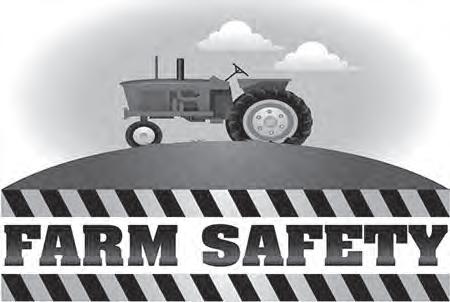

We
• Offers must exclude G.S.T. or any other levies which may be payable by the purchaser.
• Purchasers must rely on their own research and inspection of the property.
• 10% of purchase price must accompany tender which will be returned if tender not accepted.
• Approximately $10,000 annual surface lease revenue from 3 wells;
• Offers should clearly state land description and total offer.
• Taxes for 10 acres are paid to Village of Coleville
Forward tender to: Sheppard & Millar
Please include file 21-6119 when submitting tender. FARMLAND FOR SALE BY TENDER R.M. OF OAKDALE NO. 320 AND VILLAGE
“We had people come looking at what we had done and taking it back to their plants. It’s time to learn from each other. You can’t be selfish anymore – you have to open up your doors and let people see what you’ve done.”
Meanwhile, demand for beef has remained high – and even increased – during the pandemic, despite restaurants across the country being closed for much of the past year. The packing sector has been hugely profitable, with retailers scrambling to buy beef from anywhere they could source it. Western Canadian retailers were even bringing in U.S. product for the first time since before BSE, just to have some steak on the shelves.
“If a normal gross margin might be $300/ head, often times over the last couple of years, you would see double that,” said Kevin Grier, a meat and livestock market analyst. In 2020, despite the loss of food service

BRIAN ZINCHUK Local Journalism Initiative Reporter
REGINA – Crop Insurance coverage is going up due to higher commodity prices, and rates are going up as well, but the premium cost per dollar of coverage continues to decline. There’s a new pilot program for vegetables, and changes for forage and chickpeas, too.
On Canada Agriculture Day, Saskatchewan Deputy Premier and Finance Minister Donna Harpauer and, through a press release, federal Minister of Agriculture and Agri-Food Marie-Claude Bibeau, announced enhancements to the 2021 Crop Insurance Program. This year, Crop Insurance coverage will reach a record level due to higher commodity prices and increased yield coverage.
“Farmers across Saskatchewan continue to step up despite all the challenges thrown their way during the COVID-19 pandemic,” Bibeau said in a release. “These improvements to the Crop Insurance Program give Saskatchewan farmers more coverage they can count on. We will continue working with our provincial counterparts to ensure farmers have the risk management tools to help their stability and growth.”
Asked if the COVID-19 pandemic had an impact on crop insurance, Harpauer said, “None.”
“For over 60 years, the Crop Insurance Program has supported Saskatchewan producers with reliable coverage and exceptional customer service,” Harpauer said. “We are committed to providing producers with the insurance programs they need and the enhancements announced today build upon the current suite of programs.”
Coverage going up
Saskatchewan Crop Insurance Corporation (SCIC) said it “continues to provide high coverage as we enter a new growing season.”
Coverage will reach a record level of $273 per acre due to higher commodity prices and increased yield coverage, up from $224 in 2020. This represents a 22 per cent increase in coverage. The average premium cost per dollar of coverage continues to decline.
There was a 42 per cent reduction in average premium cost per dollar of coverage over the last 10 years. This includes a 20 per cent reduction directly resulting from the strong financial position of the program, SCIC said. However, due to the increased coverage for 2021, the average premium for producers will be higher than in 2020. The average premium per acre will be $8.59, up from $7.40.
Harpauer said, “Establishment benefit values are reviewed annually. This year, the establishment ben-
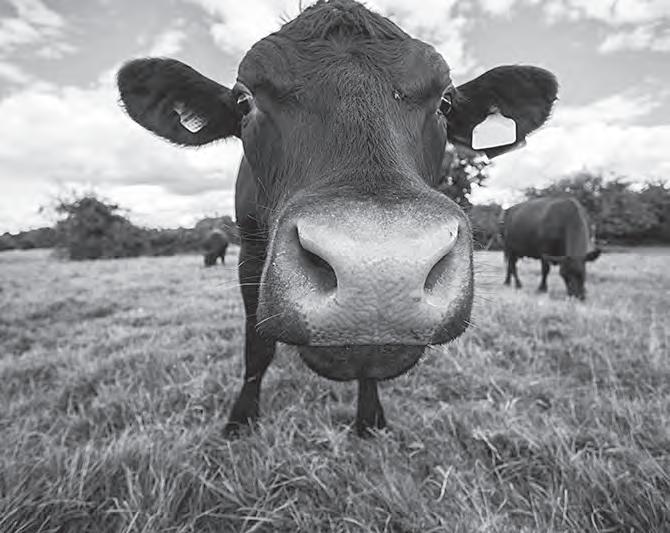
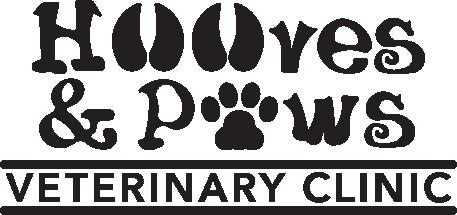
efit values for canola, lentils, chickpeas and corn have increased. Canola is now $70 per acre. Large green lentils are $50 per acre and red lentils are $30 per acre. Large Kabuli chickpeas are $65 per acre and Small Kabuli chickpeas are $45 per acre. Corn is $95 per acre.”
New forage options
New in 2021, producers growing tame hay will have additional options when insuring their hay acres. Crop Insurance customers now have the choice to insure their tame hay acres under the Forage Rainfall Insurance Program (FRIP) or the Multi-Peril Crop Insurance Program. Coverage options can be customized for each farming operation. Under FRIP, payments will be calculated based on rainfall levels, instead of overall yields.
“Saskatchewan cattle producers face a lot of risks. It is good to see the programs they can access through SCIC continue to evolve,” Saskatchewan Cattlemen’s Association Chair Arnold Balicki said in a release. “Adding tame hay to the Forage Rainfall Insurance Program and extending the calf coverage deadline and hours of operation for Livestock Price Insurance are all positive. I encourage cattle producers to look into SCIC’s programs as there were many improvements in recent years.”
“Forage producers will also see an increase in Native Forage Establishment Benefit coverage. The Native Forage Establishment Benefit provides coverage on newly seeded native forage acres. The coverage is increasing from $75 to $200. Other Forage Establishment Benefit prices seeing an increase includes tame hay to $90 per acre and sweetclover to $65 per acre,” Harpauer said. Forage producers are encouraged to review available coverage options through SCIC’s Forage Option and Weather-Based Programs.
Vegetable pilot program
“In 2021, SCIC is also introducing coverage for large scale vegetable production. Commercial vegetable growers will now have access to the commercial vegetable pilot program, which will provide standalone coverage for damage to cabbage and pumpkin crops,” Harpauer said.
SCIC has been working with the Saskatchewan Vegetable Growers’ Association to develop programming for the growing commercial vegetable sector in Saskatchewan. The impact of a crop failure on vegetable operations could be significant as a relatively small number of acres has extremely high value. A minimum of eight acres is required to participate in the program. SCIC will continue to explore insurance coverage options for the Commercial Vegetable Program.
Last summer, the Government of Saskatchewan made one of the largest announcements for agriculture in this province in years, laying out a plan for $4 billion in expansion of irrigation in central Saskatchewan, with an eye to growing different crops, including vegetables. Asked how this will impact Crop Insurance, Harpauer responded, “That’s a ways into the future. So I think it’s important that they’re doing the pilot this year. And we’ll see how that goes. As production increases in vegetables and other crops that benefit for irrigation, I think it’s been demonstrated, here in Saskatchewan, that Crop Insurance officials are very nimble in addressing the crops as they change. I know, myself, from when I was a producer, to today, the crops have changed significantly, and Crop Insurance had been there for all the changes.”


Chickpeas
Saskatchewan has also become a significant producer of chickpeas. SCIC is updating the base grade for large-seeded Kabuli chickpeas to reflect current production and marketing patterns. This increases the insured price and the quality coverage.
Carl Potts, executive director of Saskatchewan Pulse Growers, said, “I think the changes to the chickpeas base grade calculation just better reflects the size and the quality of the chickpeas that chickpea producers are producing these days. It’s simply a better reflection of the product the producers are producing, and should increase the overall level of coverage for producers.”
Potts called it “a welcome development.”
Saskatchewan Pulse Growers Board Chair Shaun Dyrland said, “This change should increase coverage levels for most of the 300 chickpea producers in the province.”
Canola’s significance
Asked if there were any trends with farmers moving towards a particular crop, or any move into a “Cinderella crop” in 2021, SCIC acting president and CEO Jeff Morrow responded, “One of the main crops in the province, and the main crops in terms of acres and liability for Crop Insurance programs is canola. That is certainly the most predominant crop. And I say our top three, other than canola, are wheat, duram and peas.”
He said it’s up to producers to decide what they plant, but historically canola has been top.
SARM reaction
Ray Orb of the Saskatchewan Association of Rural Municipalities said, “We’re actually quite pleased about some of the enhancements, in particular, with the vegetable pilot program. We think that will be good to create more diversity into the province’s agriculture industry.
“We’re also pleased to be able to look at some of the things that they’re also enhancing, Kabuli chickpeas in particular.
“In general, we’re favorable, and always have been favorable, to uplifting and adjusting some of the weather based insurance programs. And we think that will help our livestock producers, as far as protecting their forage crops and things like that.
“So generally, we’re pleased. We see that there’s an increase of about 22 per cent of the of the coverage, understanding at the same time, that will premiums will go up.”
He said generally it has served the agriculture industry well to have more coverage.
March 31, 2021, is the deadline to select insured crops and coverage levels or make additional changes to Crop Insurance contracts. Producers need to also apply, reinstate or cancel by this date.
Crop Insurance is a business risk management program supported through the Canadian Agricultural Partnership. Under Crop Insurance, premiums for most programs are shared 40 per cent by participating producers, 36 per cent by the Government of Canada and 24 per cent by the Government of Saskatchewan. Administrative expenses are fully funded by governments, 60 per cent by Canada and 40 per cent by Saskatchewan.
JOAN JANZEN joanjanzen@yahoo.com
CEREAL, AB - What happens when someone retires but after a while finds retirement is somewhat dull? Kerry and Linda Lang from Cereal, Alberta, found themselves in this exact circumstance, but they found a solution. They started up a business venture.
Kerry and Linda have lived in Cereal for a couple of years. “I was a retired mechanic, but I got bored,” Kerry said. “And Linda grew up on the farm, so she wanted to get back into having chickens. We kind of became known as the animal shelter of the Cereal area. We took in some guinea pigs and a couple of beautiful cats. It exploded from there. I’m a mechanic by trade, and a building came up for sale, so I thought, why not start a shop?”
In June of 2019, Kerry opened his small equipment maintenance and repair shop called Kerinda Small Equipment Service & Repair. The couple has 2.5 acres of fenced property, including pasture land divided into three sections, allowing the grass to recover
Cereal Animal Discovery and Budgie World is their secondary business. It is now home to 11 goats, guinea pigs, ducks, budgies, guppies, fish in aquariums, and many different kinds of heritage chickens and exotic ducks. Kerry likes to dabble in tropical fish and breed them. The couple also breeds and sells budgies to a pet store in Medicine Hat. The budgies are housed upstairs in the main building.
“We have way more birds than we can sell,” Kerry said. “Our flock is growing all the time.” They are currently looking for other pet stores where they could supply budgies. In addition, Linda has also become a Tower Garden distributor.
Kerry said, “In the summer, some of the neighbourhood children come by to watch the goats, and people in the campground have come to check the animals out. We’re down here every day, and anyone is welcome to come and watch the animals.”
When I phoned, Kerry and Linda were preparing for their open house, which took place on Thursday and Friday, March 11th and 12th, at their property at 510 - 1st Street in Cereal. Each day from 9:00 a.m. to 4:30 p.m., visitors were welcome to come and enjoy the many animals, birds and fish on-site and were even invited to take some of the animals home with them.
Budgies complete with cages were available for sale and complete aquarium starter kits, including filters, pump, heater, and fish. “We have everything they need to start up a hobby,” Kerry explained. Visitors could also inquire about the Tower Garden on the premises and find how to get one of their own.
As the weather warms up, Kerry and Linda are inviting people to come and visit their animals and check out their web site kerinda.ca






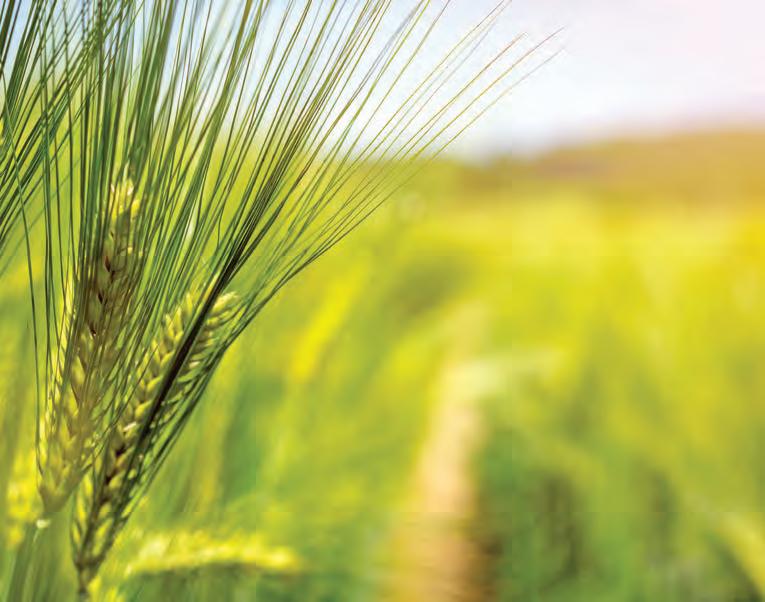


CALGARY - United Farmers of Alberta Co-operative Ltd. (“UFA”) approved a patronage dividend of $14.2 million to its membership at its virtual Annual General Meeting on Thursday, March 11, 2021. The patronage payment is for 2020 purchases in the following categories: Ag Gas (1.3%), Ag Diesel (6.6%), Canola and Corn Seed (1.6%), and the following lubricants: 18.9L pails of Spirax S4 TXM, Rotella T4 15W40 and Rotella T6 5W40 (5%).
In addition to the patronage dividend, the Alberta-based co-operative is proud to report $1.2 billion in financial revenues as $64 million in earnings before interest, taxes, depreciation and amortization (EBITDA).
“As a member-owned agricultural co-operative, it is our responsibility to support the members who continue to get the job done, even during a pandemic. The business of agriculture cannot stop,” says Scott Bolton, UFA President and Chief Executive Officer. “Serving our members and customers is the driving force of UFA, and paying patronage to those who keep the agriculture industry moving has never been more important. We are honoured to demonstrate our commitment and gratitude with this year’s patronage return.”
During the year, UFA continued to invest in its core businesses. The co-operative continued to expand its Dieselex Gold® offering and partnered with
GrainsConnect Canada to bring an exciting pilot program, offering growers the chance to maximize returns with a discount on seed and receive competitive pricing with a premium on their production contract. Bar W, a subsidiary of UFA, opened a new All Peace Petroleum site in Spruce Grove, enhancing the service offering to customers of the downstream maintenance and construction business, as well expanding its tank rentals and sales. UFA demonstrated its commitment to streamlining the overall customer experience with a new point-of-sale system, introduced in early 2020; and in December, launched its e-commerce site. Implementing comprehensive measures to protect the health and safety of its teams, members and customers, while ensuring they remained open for business, was a priority for UFA.
“This past year is like no other. We all know that we are not out of the woods yet, but spring is coming. Seed will go in the ground. Calves will be born. Fuel will be delivered. As farmers, we must move forward. This year’s patronage dividend will help our members to do just that,” says UFA Board Chair, Kevin Hoppins. “Our co-operative has weathered many storms and we will get through this one, because for over a century we’ve known that we are stronger together.”




By Erin Kelly for the Canadian Agricultural Safety Association
What comes to mind when you hear the term ‘self-care’?
A day of pampering at a spa? A facial or manicure?
While those are commonly associated with self-care in the media, they don’t represent the full picture and only further fuel misconceptions. Because while a spa day may not seem to have much in common with farm safety, self-care certainly does.
“Most people have a preconceived notion of what self-care looks like because of what is on the internet, or what they see on TV or social media. People have this idea in their head of what self-care is supposed to look like,” explains Deborah Vanberkel, a registered psychotherapist and founder of Cultivate Counselling Services in Eastern Ontario’s Lennox and Addington County, where she also works on her family’s dairy farm. Her business is focused on providing services and supports to rural and agricultural communities.
So what exactly is selfcare? That depends on the person.
As Vanberkel explains, self-care is any activity that helps someone emotionally, physically, or mentally. But what exactly that entails differs from person to person.
“If you type self-care into Google, there is going to be an infinite number of results that come up, and they are all going to be different. And while I’m sure a lot of the things that come up are great, it
does not mean that they are going to work for you,” Vanberkel says.
“Self-care is self-defining. I think that is the piece that people overthink or forget about because they end up on Google looking up what self-care is. Rather than ask Google, ask yourself what self-care means and looks like. There is no right or wrong answer for self- care, so long as it benefits you physically, emotionally, or mentally.”
Cynthia Beck is a clinical psychology master’s student at the University of Regina whose graduate research involves examining the mental health needs of rural and agricultural populations. She echoes Vanberkel’s remarks, noting that selfcare fundamentals are so basic that most people don’t realize it is self-care.
“We need to acknowledge that self-care is not indulgent. It’s a basic necessity. A huge part of self-care are those necessary, everyday things like making sure we’re eating regular meals or getting enough water,” explains Beck, who also farms with her husband on a mixed farming operation outside of Regina, SK.
“People need to customize their own selfcare and look at what their own needs are. A 20-year-old working in agriculture will have very different needs than a 55-year-old person working in agriculture. That’s just reality.”
In fact, even tasks that may seem trivial, such as cleaning the house, should not be overlooked as being beneficial to selfcare.
“With a lot of those mundane tasks, in our
current society, we have pushed them to the wayside,” says Beck. “But they actually do contribute to our personal success factor, and that success means living a happy and healthy life.”
When it comes to farm safety, stress and mental health issues are known contributing factors. That’s also why it comes as no surprise that selfcare – both prioritizing and neglecting it – has a significant influence on farm safety.
“The farm operator, our bodies and minds, are the most important part of machinery on any farm. That’s why it is so important that self-care be a priority. You can’t run a successful farm operation if you are not functioning at a healthy level,” Beck explains, adding that when selfcare is neglected, people are more likely to make poor decisions or have poor judgement.
“Often, we treat the farm machinery much better than how we treat our bodies. We fill the tractor with fuel every day. We do regular maintenance on our machinery. But how often do we provide that care and attention to our own body?”
There’s no question that farmers and farm families lead busy lives. But just because there is always something new taking priority on the farm, doesn’t mean that self-care should be considered any less valuable and necessary. The most important thing to keep in mind is that self-care isn’t selfish.
“Children, farm operations and such, everything else takes priority. So the question needs to


be put back on [farmers] of when do you become the priority and what do you do to prioritize yourself?” says Vanberkel. “People will say that they don’t have time [for selfcare] because they are looking for something that will fit their schedule. But that’s the kicker – we can make time for everything else but not for ourselves.
“It’s like driving. If you keep on driving and never stop to gas up, you’re going to run out of gas eventually.”
Canadian Agricultural Safety Week (CASW) is a public campaign held annually during the third week of March that focus-


es on the importance of safe agriculture. The 2021 campaign, Safe & Strong Farms: Lead an AgSafe Canada, takes place March 14-20. CASW is
presented by Farm Credit Canada. For more information, visit agsafetyweek.ca.








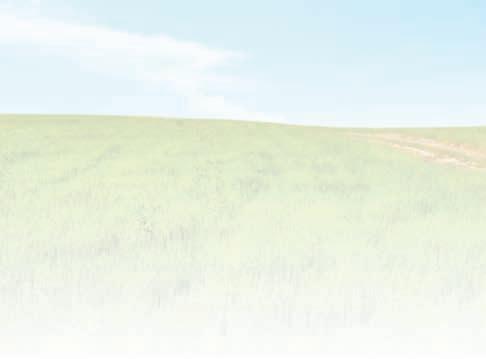


KINDERSLEY - As the CEO of G-Mac’s AgTeam in Kindersley, Garth MacDonald never knows what each day will bring as an owner/operator. This was the case when he was designated as one of the top fifty Canadian agriculture leaders by Canadian Western Agribition (CWA) in February, 2020.
“I don’t need recognition, but at the same time, I was honoured to receive it,” Garth said. “It’s exciting and a real honour when you take a look at the list of names. Agriculture is a really big industry, so I was honoured to win this Canada-wide award.” Garth said he was familiar with about ten of the people who made the list.
“These finalists represent some of the best in an industry that continues to create endless opportunities to dream, grow, and thrive. It’s certainly something to celebrate as part of Canada’s Ag Day,” Todd Kline, chief marketing officer for Farm Credit Canada, said.


The CEO of CWA, Chris Lane, concurred saying, “There is no better way to celebrate Canada’s Ag Day than to recognize the diversity of people, sectors and ideas that make Canadian agriculture what it is today.” Farm Credit Canada (FCC) and CWA began asking for nominations last year from across the country, and then a panel of judges picked the top ten finalists. Winners were placed in the following categories: mentors, upstarts, innovators, designated hitters and deal makers. Garth was a winner in the deal mak-
ers category and was one of the nine Saskatchewan residents in the top fifty. Garth noted that “Our business has expanded significantly the last few years when most independent retailers are selling out.” He attributed their success to making a plan for success in the future and the courage to execute it.
G-Mac’s AgTeam has fourteen locations across western Saskatchewan, from Lucky Lake to Meadow Lake. Not only is Garth celebrating his honoured designation, but G-Mac’s is celebrating its 20th anniversary.
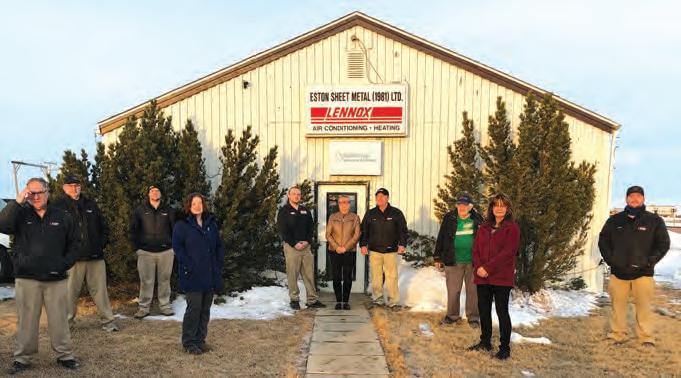




Our first day of business began on March 18, 1981. We would like to thank our many great customers for their support all of these years. We would like to say “Thank You” to all of our hard working staff who have helped us along the way. One of our staff, Pete Epp has been with us from the beginning and is still bending tin.
Our main focus has been offering our customers great value in Plumbing, Heating and Air Conditioning. In the past few years we have expanded into: Backhoe Service, Cistern and Septic Tanks, Directional Drilling and Electrical Contracting. We now have two electricians on staff.
We are proud to have sponsored: Minor Sports, KidsSport, Rambler Hockey and Ball, Curling, Eston Legion, Lions Club, 95 Lions Club, Plus 50, Eston Fire Hall, Eston Riverside Park and many more all of those years. We have always believed you receive back what you put into the community.
Looking back over the years we have provided services to many generations of families, including great grandparents, grandparents, parents and now their children who have grown up and having children of their own.
Over the next year, we will be drawing for monthly prizes, ending the year with our “Major Prize” ... a trip for two to Maui, Hawaii! The winner will receive one week accomodation and air fare for two. Follow our Facebook page and watch for our monthly draws.
Once again, thank you so much to all of our customers and good luck in our draws.
- Bill, Gwen and Mitch Etter

By Erin Kelly for the Canadian Agricultural Safety Association
We can all agree that 2020 was a year like none other. It was a year that tested everyone’s readiness to adapt to change quickly. And the agricultural industry was no exception.
From labour logistics and personal protective equipment (PPE) shortages to processing delays and pivoting to online marketing, many farmers across the country encountered a long and ever-changing list of challenges due to COVID-19.
“Farmers faced a lot of new challenges in their ability to function within the restrictions [associated with COVID-19], as did everybody,” says Wendy Bennett, Executive Director of AgSafe in British Columbia. “But if you have a farm, the opportunity for everybody to work from home doesn’t work. Here I am working at my dining room table, but that’s not an option if there are 100 acres of apples to pick.”
In Manitoba, Thea Green, Program Manager for Keystone Agricultural Producers, says that for many farmers the pandemic did not impact their ability to farm, but
“it did impact how they farm.”
There is no denying the hardships and challenges that have been experienced across the Canadian agricultural industry. However, the COVID-19 pandemic has also provided the sector with a unique learning opportunity and the chance to explore new processes.
“We all adapted because we were forced to; it’s never fun to have to do something because you’re backed into a corner. But there has also been some benefit to being forced to explore change, to make it a priority,” explains Carolyn Van Den Heuvel, Director of Outreach and Member Relations with Nova Scotia Federation of Agriculture.
“We all hit some bumps and hurdles along the way while figuring it all out, and if we look at how our food value chain adapted, it’s really impressive and worth recognizing.”
Health and safety procedures top the list of what has been impacted by COVID-19 on farms across Canada. While another layer has been added to what employers have to do to ensure everybody’s well-being on the farm during the pandemic, those require-
ments may have a positive and lasting effect on farm health and safety procedures.
“COVID opened a lot of eyes to worker health and safety requirements across the board. And those requirements have largely always been there, but some people didn’t think they applied to them. I think, moving forward, the experience of dealing with COVID is going to make people pay more attention,” explains Bennett, adding that her organization has seen a noticeable increase in requests for help with implementing health and safety measures.
“The importance of preparedness has really become evident during COVID-19,” Green notes. “We never know what is going to come our way in the industry, but farmers can use the experiences of COVID-19 to do emergency preparedness for a whole range of situations that would allow them to respond more effectively.”
Van Den Heuvel agrees, explaining that the pandemic underscored the importance of implementing a farm safety plan and conducting a risk assessment.
“We are going to look at health and safety differently going forward. COVID has been, for

lack of a better term, a good exercise for implementing a farm safety plan,” she says. “Health and safety are part of an overall farm management plan, and having a solid management plan, understanding processes for making decisions, and communicating with family members and workers were shown to be fundamental during COVID.”
In fact, communication became an essential component across the agricultural industry in response to COVID-19, with collaboration proving particularly beneficial for commodity groups, which used shared experiences to find solutions and address challenges.
“The importance of having open communication really came to the forefront with COVID. The only way that all of us were able to adapt to COVID successfully was by working together,” explains Van Den Heuvel. “COVID showed us what true collaboration brings us; it showed us when we work together, how much further we can get.”
But the benefits of increased communication haven’t been limited to within the industry. With more people cooking at home during the pan-
Your Southwest Media Group has an immediate opening for a general reporter and photographer for our 2 weekly publications (Your West Central Voice and The Oyen Echo).
The ideal candidate:
• Computer skills in a Mac environment with basic knowledge of Photoshop and InDesign.
• Current driver's licence with reliable vehicle and cellphone.
• A degree or diploma in journalism or a related field, or equivalent experience. An ability to work independently and as part of a team.
• Research and write 5 to 10 news and feature stories per week.
• Topics can include, but not limited to agriculture, community, family, business, people, sports, and events.
• Attend some public meetings and events.
• Conduct interviews on the phone or in-person.
• Take photos when necessary.
• Produce succinct, clear, and accurate copy on deadline.
Qualifications:
• Efficient research, interview, photography and writing skills.
• An aptitude for news judgement.
• Knowledge of the region’s background.
• Personable, confident and curious nature.
• A flair for story-telling.
• Social media savvy.
Position could be based in Kindersley, Sask. or Oyen, Alberta. Please state preference along with wage expectation on your cover letter.
demic, COVID-19 has provided the agricultural industry with a valuable opportunity to connect with consumers about their food and what’s being done to ensure food security in Canada.
“There has been heightened interest in Canadian food during the pandemic, and Canadian consumers are increasingly interested in where their food is coming from,” says Green.
Adds Van Den Heuvel, “There is definitely a recognition for agriculture amongst the public like we haven’t necessarily seen in the past, and that means more opportunities to connect with the public about their food.”
What things will look like post-pandemic is still anyone’s guess. But one thing is for certain: Canadian farmers’ abilities to adapt and continue to produce safe and healthy
products are proof that the pandemic won’t hurt the agricultural industry. It will make it stronger.
“Everyone in agriculture recognizes that everyone else in agriculture is going through similar challenges,” says Bennett. “And that collaboration will only make the industry stronger for everyone because COVID showed us that you never know what’s next.”
Canadian Agricultural Safety Week (CASW) is a public campaign held annually during the third week of March that focuses on the importance of safe agriculture. The 2021 campaign, Safe & Strong Farms: Lead an AgSafe Canada, takes place March 14-20. CASW is presented by Farm Credit Canada. For more information, visit agsafetyweek.ca.

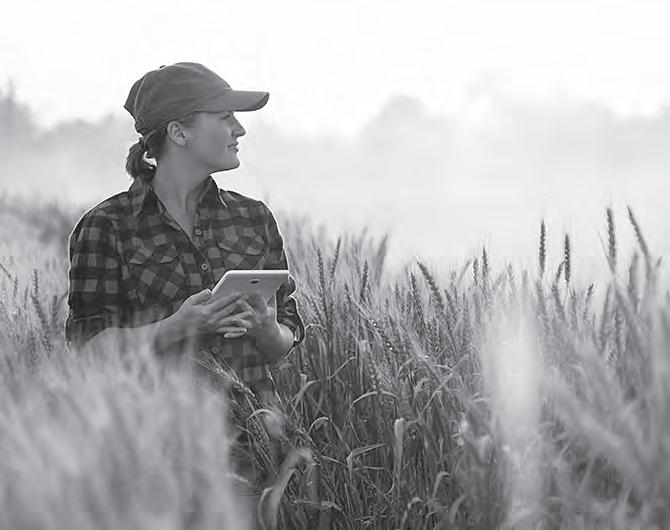
WISHING ALL OF OUR AREA FARMERS A SAFE GROWING SEASON. Our sensible solutions can help you improve your day-to-day business operations, while our insights can help you pay less tax and plan for the future.
Submit your resume and writing samples - along with a cover letter by February 19th, 2021 to: kate@yoursouthwest.com, attention: Kate Winquist. DEADLINE FOR APPLICATIONS: FEBRUARY 19, 2021.
Submit your resume and writing samples - along with a cover letter by March 31, 2021 to: kate@yoursouthwest.com, attention: Kate Winquist. DEADLINE FOR APPLICATIONS: MARCH 31, 2021




It’s Canadian Agricultural Safety Week, and this year be a leader. Lead your community, your farm, and your family in farm safety. Start conversations and raise awareness. Be part of an AgSafe Canada and help make Canadian farms a safer place for everyone to live and work.
This Canadian Agricultural Safety Week, celebrate Safe and Strong Farms. For more information on Leading an AgSafe Canada, visit agsafetyweek.ca.
Canadian Agricultural Safety Association
“This is the way it’s always been done.”
“There’s not enough time.”
“We’re doing fine without one.”
We all know there are endless excuses for not having a farm business plan.
But a recent research study has found that farm business management isn’t just good for business – it’s also good for mental health.
Healthy Minds, Healthy Farms, a research study from Farm Management Canada, explored the relationship between farmer mental health and farm business management, looking to identify how one can help or perhaps hinder the other.
“I wondered if, for already busy and overwhelmed farms, our encouragement to improve farm business practices was adding stress to an already stressful situation, or whether we are helping,” Heather Watson, Executive Director of Farm Management Canada, explains of the research’s premise.
The verdict? Business management practices can play a significant role in producing healthy farms and farmers.
In fact, the research study, which surveyed 1,735 Canadian farmers, found that 88% of farmers who follow a written business plan say it has contributed to their peace of mind.
However, Watson notes there is a flip side to that promising finding. With more than 75% of survey respondents indicating they are experiencing medium to high levels of stress, she says it was surprising that 41% of farmers are not following a business plan because they believe they are succeeding without one.
“It just doesn’t add up when you consider the sheer number of farmers experiencing significant
stress,” Watson says, adding that women and young farmers stood out as having particularly high levels of stress as a result of farm transition and family conflict.
“We hope that our research findings can help farmers start to redefine success and what it means not only for themselves but for their farm team.”
So what’s stopping so many farmers from using business management practices? Watson explains that a lot of it comes down to misconceptions about business planning. A prime example of those misconceptions: once a business plan is in writing, it’s written in stone.
“Farmers tell us the agriculture sector is too unpredictable and complex to put any plan in writing. Many cite they have a plan, but then point to their head. However, writing the plan down is key, as it’s not the plan itself that is the most important, but rather the process of planning – thinking about your end goals, risks and opportunities, and inviting others into creating the vision for the farm, family and themselves,” explains Watson.
“Planning ahead does not mean predicting the future – it means preparing for whatever might happen in the future.”
It’s no secret that risk management is a key ingredient for planning ahead. But Watson notes that the common status quo practices aren’t adequate. She explains there is a need for the agricultural industry “to be bold” in taking a more comprehensive approach to managing risk. That means having risk management go beyond just the financial side of things and include business planning factors, like human resources, marketing, and production.
“What good is a profitable farm if its people are stressed and heading towards burnout or worse? What good is a profitable farm if its people are com-
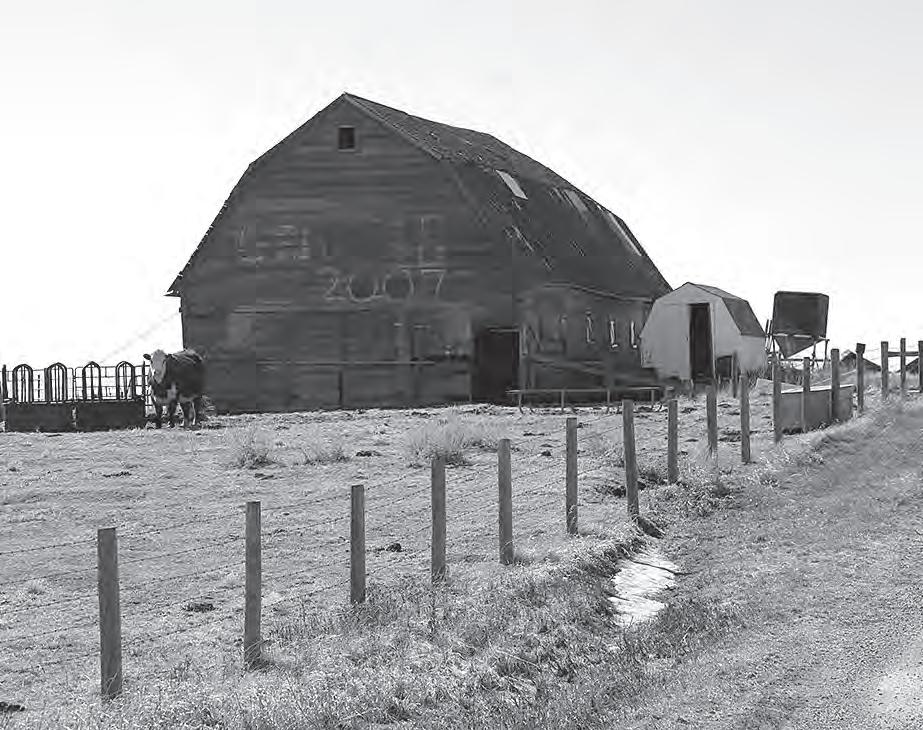
promising their farm safety and taking unnecessary chances with their lives?” says Watson.
“We must, as an industry, realize and promote the interconnectedness of managing risk, including mental health, and managing the farm through proven business practices.”
In addition to proving a positive connection between farm business management and mental health, the Healthy Minds, Healthy Farms study also identified 24 comprehensive recommendations. Those recommendations include a range of actions from raising awareness about farmer mental health and improving mental health literacy for farmers to providing risk management support and advocating for farmer- specific mental health services.
“Our research results provide a roadmap for Canada’s entire agricultural industry to support mental health and likewise farm business management,” Watson explains. She adds that Farm Management Canada is working to ensure the study doesn’t “sit on the shelf collecting dust,” and has incorporated the findings and recommendations across all of the organization’s services and programs.
“We have a chance to really step up our game as an industry and support our farmers where they need it most.”
After all, as the study title suggests: a healthy mind goes hand in hand with a healthy farm.
Canadian Agricultural Safety Week (CASW) is a public campaign held annually during the third week of March that focuses on the importance of safe agriculture. The 2021 campaign, Safe & Strong Farms: Lead an AgSafe Canada, takes place March 14-20. CASW is presented by Farm Credit Canada. For more information, visit agsafetyweek.ca.
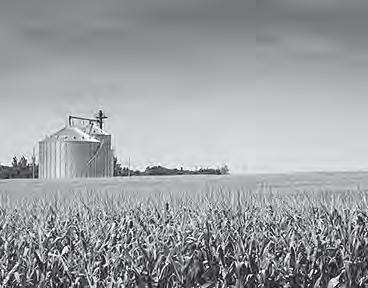
By Robert Gobeil for the Canadian Agricultural Safety Association
It is important to use the One-Call Service before starting any project on the farm where ground will be broken, regardless of depth. This applies to all small or large projects such as sod removal for a garden, fencing projects, digging a new well, or putting in a foundation. The One-Call service is free of charge and it only takes a few minutes to submit a utility locate request. Although many underground infrastructures and utilities are found in urban areas, rural areas also have a number of these services.
Privately owned utilities are the responsibility of the customer. (Examples of this include water lines from a private well, and power lines to a garage or shed past the meter.) Utility owners do not know the location of these lines. However, the One-Call service will be able to refer a private contractor that can help locate these utilities.
Buried utilities can be just beneath the surface and digging prematurely can put you in harm’s way or cause major damage to a utility line. A property owner or contractor who damages a utility may be charged for repairs. As they say...know what’s below.
Some of the typical buried utilities that could be in your work area are:
• Electrical lines
• Gas, oil, or petroleum pipes
• Communications, fibreoptic, and cable lines (or conduits)
• Water pipes
• Sewer pipes
• Survey markers
A utility locate request is made by visiting ClickBeforeYouDig.com and following the instructions on the website. Select the province in which your project is located, take note of the “Advance Notice” and “Days Valid” information, then identify if the locate request is for a homeowner or contractor. You will then be directed to your provincial One-Call site. You may need to set up an account with a login and password if you have not used the service before. Follow the instructions to submit your utility locate request. There is also a live chat option (and phone numbers) available on most sites for any help you may need.
If you receive confirmation that the area is all clear of buried utilities, you can start digging.
If the work area does have buried utilities, you will need to identify the work area before the utility locate personnel come to mark out the location of buried utilities. Your work area needs to be clearly identified and it is recommended to use white spray paint. It usually takes 3-5 days for utility owners to mark the buried utilities.
Once the utilities are marked out, be sure to respect the marks and follow instructions from the utility owners. You
will need to dig by hand within one metre of any buried utility.
You can remove any flags or markers once you have completed all digging in your work area.
Please note that a new locate request will need to be completed for a larger project where you need to dig 30 days after the original locate request and for each new project.
Remember, better safe than sorry. No matter the project and no matter the location, take the time to contact the OneCall service. Digging safely will ensure
your safety and prevent costly utility repairs and interruption of utility services.
Canadian Agricultural Safety Week (CASW) is a public campaign held annually during the third week of March that focuses on the importance of safe agriculture. The 2021 campaign, Safe & Strong Farms: Lead an AgSafe Canada, takes place March 14-20.
CASW is presented by Farm Credit Canada. For more information, visit agsafetyweek.ca.



for the Board of Directors are being received from March 10th , 2021. Members of the Prairie Centre Credit Union (2006) Ltd. are informed that there are four vacancies on the Board of Directors in the
More information including nomination packages can be found online at , or at any of our branches. Completed nomination forms must be Wednesday, March 24th
Lakeland
lakelandcollege.ca/ag
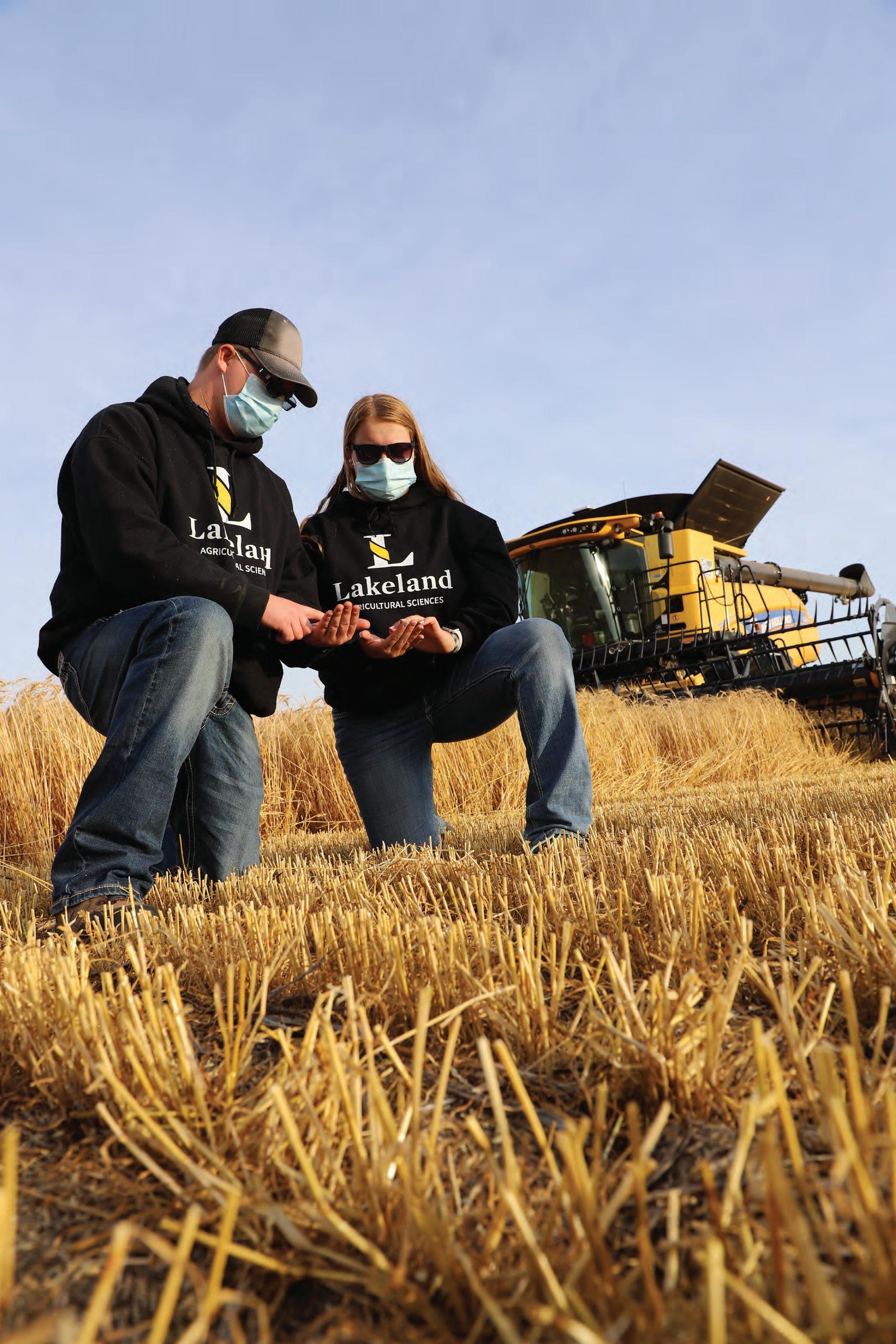
“The Cartwright Men Marry”
by Monique Desrosiers
Published by Wood Dragon Books
Review by Toby A. Welch
I love when a book sucks you in immediately with a great action scene. This one does just that, pulling you into an avalanche in 1863 before launching into present day.
The Cartwright Men Marry jumps often from the years in the 1860s to current day. At its heart, this book is two separate stories linked by history and family roots. Desrosiers seamlessly pulls off the constant shifting, never making it awkward for the reader.
As a child of the 70s, this book had a Bonanza vibe right from the get-go for me. (For you millennials and nonTV watchers, Bonanza is an American Western TV series that ran from 1959 to 1973, a record-breaking 14 seasons. The show featured a family of Cartwright men dealing with ongoing moral and situational dilemmas.) The names sounded familiar, as did some of the history, and I discovered why. When you get to the end of the story, Desrosiers includes a page titled Why I Wrote The Cartwright Men Marry. She explains how binge-watching Bonanza in December 2018 inspired this book. She couldn’t stop thinking of what kind of husbands the Cartwright men would have made and you will find the answer in this book. Fans of Bonanza will likely love this read.
The heart of this book for me is about love and the struggles people go through to find and keep it. As a romantic, I ate up every page! I rooted for some of the couples more than others and cheered when my favourites were able to make it work. (I don’t want to delve too deeply into the plot or this review will need a big “Spoiler Alert” warning on it.)
Let’s talk about dialogue for a moment. When it is done right, it adds to a story in a harmonious way. When it’s sloppy, it is painful to read. And there is such a fine line between too much dialogue and not enough. Desrosiers is a master at dialogue, balancing all those aspects perfectly. It made this book an even greater pleasure to read.
Desrosiers included 13 questions at the back of the book, Questions for Book Clubs. I love that! This would be a great read for a book club to consider choosing.
At the back of the book you will also find three family tree charts that detail the characters. As this book has a lengthy roster of players, the chart is handy for when you need to refresh your memory on who you are reading about.
For romance fiction fans who like a bit of intrigue and a hearty dose of the cowboy vibe, I strongly recommend you pick up a copy of The Cartwright Men Marry.
THIS BOOK IS AVAILABLE AT YOUR LOCAL BOOKSTORE OR FROM WWW.SKBOOKS.COM






BULLIED - Willaim (Bill)
Roy Bullied passed away March 11, 2021 after a courageous battle with cancer.
Bill is survived by his son, Larry (Heather), grandchildren Cory (Courtney) Bullied and William Gutenberg, Amanda (Wes) Solverson, and Donovan Jordan; great-grandchildren
Avery, Cooper and Aurelia, Lexi and Abby. He was predeceased by his loving wife Donna and numerous family members.
A memorial service will be held at a later date.
Donations in Bill and Donna’s memory may be made to the Kerrobert Hospital.
ADRIENNE
Many non-profit organizations are struggling to stay afloat during the current pandemic. Since most clubs have had to close their doors to the public or minimize the capacity numbers to less than half, keeping up with their regular monthly payments has been difficult. There is no government funding available for existing operating expenses. Clubs can apply for grants to expand or build onto their existing capital structure, yet there are no options for help with the daily needs such as utilities, power, and property
taxes.
Lorne A. Johnson, the President of the Wheatland Plus 50 Club in Eston, recently wrote a Letter to the Editor to the West Central Voice, as well as posted a few various advertisements around Eston, to plead for help from the community for donations to help cover the basic costs of their building. A primary revenue for the Plus 50 Club is renting their facility. Since most events have been canceled or postponed indefinitely, revenue has been reduced to almost nothing in the past year. Their goal was to raise around $7,000 for their immediate needs
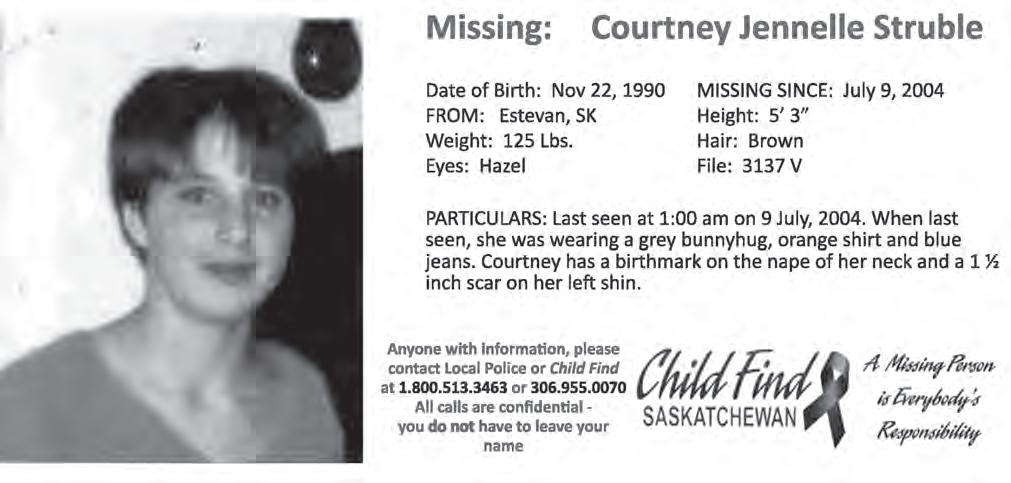
• 20 to 30 hours per week, plus relief.
• Duties include: Accounts Payable / Receivable, Invoicing, assisting with admissions/discharge of residents and assisting with other administrative duties as directed.
• Successful applicant will have knowledge of Word and Excel programs.
• Experience with Payroll and Benefit remittances an asset.
• Must have ability to work independently with minimal supervision.
• Eligible for Benefits.
• Job description and salary will be discussed if/when applicant is chosen for an interview.
Please submit resume with references to: Cora Knuttila, Administrator Eatonia Oasis Living Email: eol@sasktel.net Fax: 306-967-2434 END DATE: March 31, 2021 If you have any questions, please call 306-967-2447.
and carry them to when the revenues could start flowing again.
During an interview last week, Johnson was happy to report that the Plus 50 Club’s fundraising efforts paid off, and they exceeded their goal by raising just over $8,000. He thanked The Voice for publishing the Letter to the Editor and said that, “There was a tremendous response from the community. That will pay our bigger bills and keep us in the
black for a while.”
The club will be starting bingo night again which has been a good bi-weekly fundraiser for the them in the past. They will be following COVID-19 safety regulations and will not be able to exceed 30 people in their building.
Another fundraiser is in the works that many ‘Estonites’ should enjoy. Watch out for the “Sink the Pandemic” fundraiser coming soon to a pond near you!

The Eston & District Development Board is seeking an individual to work permanent part-time. This person would be responsible for the economic development & business relations for the Town of Eston and the R.M. of Snipe Lake.
For full job description and how to submit a resume and cover letter, please visit eston. ca/employment or email cao@eston.ca





For his entire professional golfing career, Tiger Woods has been chasing the legendary Jack Nicklaus’s major-title record of 18. Now, he has another immortal to try to emulate — Ben Hogan.
Hogan famously returned to championship-calibre golf after being critically injured in an automobile-bus crash in 1949. Hogan’s injuries sidelined him for close to a year in the prime of his greatness. But Hogan returned to glory, winning six major championships, including the 1950 U.S. Open at Merion 16 months after his brush with death.
Now, Woods faces a similar challenge, although it presents a less likely successful result.
Hogan was 36 and in peak physical form at the
time of his crash, while Woods, who suffered severe leg and ankle injuries Feb. 23 after his car hit a median, crossed the other lane and left the Los Angeles road, rolling multiple times down an embankment, is 45 and inhabits a body held together thanks to multiple back and knee surgeries.
Woods, likely the most prominent individual athlete in the world, has enjoyed growing global fame since breaking into professional golf in 1996.
A cave dweller in the depths of Mongolia may not know a thing about Tiger Woods, but he’d be in the minority. Have you heard of the Pope? Paul McCartney? Muhammad Ali? Albert Einstein?
Same fame deal. Woods was entertainment. People who knew or cared little about golf were likely to turn on their TVs if Woods was in contention in a major tournament. He made millions of dollars for the television networks. His popularity resulted in skyrocketing purses on the PGA Tour.
He was once the best golfer in the world. He isn’t anymore. He won’t
be again.
He was once a great husband, until his aura of a role model came crashing down when he was outed as an adulterer and a philanderer in 2009. He was a doting son and apparently a great father to his two kids, Samantha and Charlie, but he nearly left them without a dad due to his recklessness.
He has dealt with at least three dangerous driving events — two crashes and a third when he was stopped by police for drugged driving — at the wheel while under the influence of post-surgery pain-killing drugs. Someone as wealthy and vulnerable behind the wheel as Tiger Woods should hire someone to transport him safely, day or night.
What Tiger Woods did Feb. 23 in L.A. was no accident. The word ‘accident’ carries with it no culpability. Woods was reportedly speeding and obviously reckless behind the wheel. He is lucky, very lucky, to be alive.
Corporate America will continue to feed him millions, and he’ll recover while bathing in sym-
pathy and well-wishes for successful rehab. But he won’t catch Jack and he won’t equal Hogan’s accomplishment. But he’s alive and that’s good enough.
• Headline at the onion.com: “Hockey Hall Of Fame Debuts Interactive Exhibit Letting Fans Play With Game-Used Teeth.”
• Dwight Perry of the Seattle Times: “NFL owners are pushing to implement a 17game schedule for this coming season. “A$ you might $u$pect, we have our rea$ons for playing $eventeen,” said one.”
• Jamison Hensley of ESPN.com, after Ravens coach John Harbaugh paid the entire $2,000-plus restaurant bill during a Baltimore charity event: “Harbaugh covered the spread.”
• Phil Mushnick of the New York Post: “In Charles Barkley’s latest commercial endorsement ads, he appears huge, his stomach standing guard over his toes. He’s bigger than a bread box … factory.”
• Comedy writer Brad Dickson of Omaha: “Dish Network and


DraftKings just struck a deal that will allow fans to place bets on sporting events from their televisions in the middle of games … OK, we’re going to need another $1.9 trillion bailout very soon.”
• RJ Currie of sportsdeke.com: “NBA star Joakim Noah announced his retirement, finishing his pro career 0-for-16 in three-pointers. Big surprise: a guy named Noah preferred his points two by two.”
• Headline at fark. com: “Calgary celebrates 7-3 win over Senators by firing coach.”
• Another fark.com headline: “J.J. Watt has gone from being a saint in Houston to being a Cardinal in Arizona.”
• Dwight Perry again: “Sure sign we’ve been in lockdown too long: The Milwaukee Bucks unveiled a ‘Hand Sanitizer Cam,’ featuring a superimposed bottle ‘squirting’ fans in the stands.”
• Bucs QB Tom Brady, 43, when chubby 42-yearold CBS ‘Late Late Show’ host James Corden asked if Corden could be drafted into the NFL: “You might be able to play for the Jets.”
• Nick Canepa of the San Diego Union-Tribune: “Players hate going to the NBA All-Star Game — as they should — and get upset when they’re not invited.”
Care to com ment? Email brucepenton2003@yahoo.ca



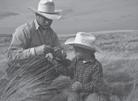









Need Excellent Extra Storage? 2-4200 bus. and 1-3800 bus Butler bins on H.D. “Prairie Steel” floors with skids. Asling $9250.00 or best offer for all. 306-463-7756.
SHOPRIDER P424M Power wheelchair. Purchased in 2018, used intermittently. Like new condition. $2300. Call 306-4637974.
ROOMS FOR RENT. $500. Includes all utilities. Call Tim Schuh at 306-460-9292.
FOR RENT: 2 miles south of Eston on Hwy 30. $1000 per month. Call 1-306-962-7881.
WANTED TO BUY - Hunting Rifles, Shotguns and Ammunition. Have permits. Call 463-7756 (Cell). MR29

On March 4, 2019 – an election year
– Prime Minister Trudeau stood and emphatically stated “I will always fight for Canadian jobs.”
Recently, the Canadian government was formally notified that President Biden would cancel the Keystone XL expansion project. The government has since communicated they will accept the President’s decision and will not fight to change his mind on a key campaign promise.
Ask yourself: does the action match the rhetoric? And would the Prime Minister take a different approach if this project were in Ontario or Quebec?
Meanwhile the NDP outright celebrated the end of the project.
Construction of the Keystone XL expansion should be a top priority for Canadian-U.S. economic relations. It is critical


Sheppard &Millar Law
Barristers and Solicitors
Monte J. Sheppard, BA., JD. Mark L. Millar, BA., JD.
113 1st Ave. E. Kindersley SK S0L 1S0 Bus. 306-463-4647 – Fax 306-463-6133 Kerrobert 306-834-5657 Kindersley.law@sasktel.net


to North American energy security, will have a tremendous employment impact north and south of the border and has garnered significant indigenous support. Environmentally, Keystone will reach net-zero emissions when it first turns on and will be powered by 100% renewable energy by 2030.
Now is the time for our nations to strengthen our trading relationship, not erect further barriers to collaborative and sustainable development.
Saskatchewan’s priority is to continue advocating for our interests with the new administration, including protecting the important trade and export supply chain between our nations and strengthening North America’s energy security.
The Nekaneet First Nation in Southwest Saskatchewan showed its belief in
the project by purchasing an ownership stake in the pipeline that would cross through reserve and non-reserve lands. This project would secure future financial stability and growth opportunities for the people of Nekaneet, and our government will continue to support investments like this for the Nekaneet First Nation, and for all the people of our province.
We will continue exercising our contacts in Washington D.C. to advocate for the continuation of this project that clearly benefits both of our nations. It is unfortunate that our Prime Minister, the one who will “always fight for Canadian jobs”, is hesitant to do so if those jobs are in Western Canada.
Sincerely,

Ph: 306-463-2511 • Fax: 306-463-6550 24 HOUR EMERGENCY









WEEK OF FEBRUARY 28 TO MARCH 6, 2021
THIS WEEK: CAPRICORN, AQUARIUS AND PISCES
ARIES
This will be a week when emotions run high. Be careful not to put yourself in situations where you have to make all the decisions, as you’re likely to be criticized.
TAURUS
You’ll need to jockey your way into a better position; don’t hesitate to show your true character. You’ll have the opportunity to travel and discover new cultures.
GEMINI
You’ll stand out considerably among your friends and colleagues. These people are likely to offer a helping hand as you go through a number of transformations.
CANCER
If you open your home to loved ones, don’t expect them to help you out with household tasks. They might even want to be waited on. Fortunately, good times are on the horizon.
LEO
9. Deal
WEEK OF MARCH 7 TO 13, 2021
ARIES
Horrible monster
11th grader 19. Swimmer’s protection 21. Regard 23. Fair-haired 24. Lenten Wednesday 25. Rightful 27. Familiarized 28. Foot-shaped device 29. Maul
Tingly
At work, you’ll be happy to take on a new group of clients interested in your products and services. The abundance of work will also get you thinking about starting a new project.
Threshold
Taboo
Kind of dive
Understood
Italian money, once
TAURUS
A getaway may be planned at the last minute. You might also consider going to work in another region so you can enjoy new and more enriching experiences. A training course will prove beneficial.
30. Punching tool 37. Suggests
GEMINI
When faced with a need for change, you’ll be guided by the little voice in your head that encourages you to live a life of passion and adventure. Doing so will allow you to broaden your horizons.
CANCER
You’ll slowly come across the right information to take your life in a new direction. You’ll find yourself full of enthusiasm and joy as you plan for the future.
LEO
5. Mr. Ed’s fodder
WEEK OF MARCH 14 TO 20, 2021
Your ambition and enthusiasm will allow you to grow your income. You’ll be able to afford to treat yourself. If you book a weeklong vacation, it will be a memorable experience.
TAURUS
To avoid any unpleasant surprises when it comes to your finances, take the time to look over your bills. A mistake regarding a sum of money might have been made and could cause a major inconvenience.
GEMINI
It’s important to think long and hard before you embark on a new adventure that’ll change your daytoday life. New options will become apparent as the week unfolds.
CANCER
You’ll receive invitations to participate in an array of activities, each more exciting than the last. However, don’t forget to make time to rest and relax.
LEO
You’ll have to deal with people who are all talk and no action. Go with your initial idea; it’s the right one, and you’ll avoid being led astray by people who don’t know what they’re talking about.
“Long, Long ____”
Temporary relief 8. Smacks, as a fly
VIRGO
At work, you’ll have to negotiate with a few different groups to reach an agreement following a tense situation. You’ll likely play a role in your community or work union.
VIRGO
At work, as well as among your family and friends, you’ll be in charge of organizing a largescale event. It’ll be quite a challenge to plan. You’ll also be asked to get involved in your community.
VIRGO
You certainly appreciate the financial stability and independence that your job provides. With the salary earned, you’ll be able to travel and explore.
BY JORDAN PARKER https://parkerandpictures.wordpress.com/
Rush Hour – Available On Netflix
This is perhaps one of my favourite comedies of all time. It never gets old, and it delivers the belly laughs I sometimes sorely need.
A buddy-cop comedy at its heart, it follows a Hong Kong inspector and an L.A.P.D. detective on a case to rescue the Chinese Consul’s kidnapped daughter.
But they’re also faced with a dangerous crime lord while on their mission. Unfortunately, the mild-mannered inspector and the loud, brash detective will have to sort through their differences if they’re going to break cases.
Jackie Chan and Chris Tucker showcase incredible chemistry here, and the two are a match made in comedy heaven.
All three Rush Hour films will keep you smiling on any binge-watch day.
There are few films more defining than director Rob Reiner’s absolutely incredible Stand By Me.
Based on Stephen King’s novel, it follows a group of young friends who find the body of a missing boy during a summer in their youth.
Featuring incredible performances from Wil Wheaton, the late River Phoenix, Corey Feldman, Jerry O’Connell and Kiefer Sutherland, it’s an absolute treasure.
I don’t think many movies defined my childhood like this one – save for Indy and Star Wars – and it’s always worth a rewatch if you’ve already seen it.
Stand By Me is an enduring classic, and one that I could never grow tired of.
LIBRA
You’ll be overflowing with great ideas and initiatives. In addition, you’re constantly changing your plans to suit your mood, which may irritate certain people around you.
So this is a slightly weird pick, in the sense that it seems I’m one of few critics who really, truly enjoyed it.
SCORPIO
Professionally, you’ll experience success when dealing with a group or the government. In terms of your health, you’ll be surprised by the treatment you receive to resolve a longstanding problem.
You’ll embrace a form of spirituality that will allow you to have a more active social life and meet interesting people. You’ll form new friendships and improve your wellbeing.
LIBRA
LIBRA
that makes it all the better.
You don’t always enjoy being in the spotlight. However, when you accomplish a major feat, it’s normal to want to receive applause and be the focus of everyone’s attention for a while.
The Oscar-nominated film about a rancher who agrees to hold a captures outlaw awaiting the Yuma train to court follows the struggles he faces as he tries to keep a handle on the prisoner.
You’ll finally get your priorities straight this week. You’ll end a long period of procrastination and set in motion some muchneeded changes.
SCORPIO
Confusion is possible in a chaotic universe. Fortunately, all you need is a second cup of coffee to help you regain your energy and complete a number of small miracles every day.
For me, an acting showcase is always worth seeing, and the performances in Walkaway Joe really lend themselves to a viewing.
Directed by actor Tom Wright in his debut behind the camera, it’s a slick, character-driven drama about a friendship between an older drifter and a young boy in search of his wayward father.
SAGITTARIUS
After an intensely stressful period, you’ll certainly need to take a step back and get some rest. You’ll need to recharge your batteries in order to feel like you’re getting a fresh start
CAPRICORN
Oscar nominee David Strathairn stars as the titular Joe, a drifter with a past he’s trying to hide. He meets young Dallas, in search of the bar-dwelling poolhall junkie father who walked out on him.
You’ll likely work a lot of overtime. Fortunately, you’ll eventually manage to let loose and enjoy yourself with loved ones, who’ll invite you to participate in fun activities.
AQUARIUS
Joe and Dallas become closer as they travel, and when they find father Cal, it becomes apparent money and living his own life are more important to him than fatherly duties.
Whether it’s imagining a vacation or a quick romantic getaway, you’ll have your head in the clouds. You might have thoughts of moving abroad or going on some type of expedition.
So Dallas joins the pool tournament his father plans to win, in order to get the cash prize and teach his father a lesson.
PISCES
Changes are inevitable. Tightening your circle of friends will help relieve some of your stress, making it easier to pursue aspirations that are more in line with your needs.
Perhaps the best thing about Walkaway Joe is the interplay between the incredible Jeffrey Dean Morgan as Cal, and Strathairn. The two are dynamite together.
This may not knock your socks off, but it was well worth a 90-minute escape for me.
3:10 To Yuma – Available On Netflix
To see two fantastic living actors pair together in a remake of a timeless western classic is always a pleasure.
When the thespians are as formidable as Russell Crowe and Christian Bale,
SCORPIO
Crowe and Bale are perfect, and Ben Foster is an absolutely fantastic baddie in any scenario. He’s especially good in this film.
You’ll start seriously looking into finding a new home or buying a house. Your children will bring you a moment of great happiness.
SAGITTARIUS
It’s an early film of lauded director James Mangold, known for Cop Land, Girl, Interrupted, and Logan, and he hits it out of the park.
You and your partner will talk about taking a vacation, which will encourage you to learn more about certain destinations that you’ve been interested in for a long time.
SAGITTARIUS
You’ll be extra chatty this week and always know what to say to get a laugh. A well timed joke on your part may defuse a tense situation at work or at home.
3:10 To Yuma is a triumph, and a rare remake that improves on the original.
Coming 2 America – Available On Prime Video
CAPRICORN
If you have concerns about your health, take the time to visit your doctor and have the necessary tests done. Either everything will be fine, or you’ll receive extraordinary care that’ll allow you to quickly heal.
CAPRICORN
I’ll say right off the top after seeing this: The sequel does not match the original.
You might start compulsively shopping. You’ll also feel a strong urge to get moving and experience new things. Be careful not to drain your bank account.
AQUARIUS
But at the same time, if you’re a fan of Coming To America – or classic Eddie Murphy in general – then you’ll find something to like in this one.
It’s important that you take enough time to rest so that you can start the week off on the right foot. You’ll need all the sleep you can get to be efficient and up to the task at hand.
It follows our African monarch Akeem as he tries to find his long-lost American son, conceived during his first trip to New York.
PISCES
He needs an heir, and because of tradition, none of his daughters fit the bill. This is a film both about changing outdated traditions and loving one’s family the right way.
You’ll be very creative. You’ll likely draw inspiration from dif ferent cultures or ways of life to create a masterpiece. As fatigue creeps up on you, you’ll start to plan a vacation to get away from it all.
Murphy is hilarious, as is the returning Arsenio Hall. But it’s the new talent that makes a true impact.
Tracy Morgan, Leslie Jones, Wesley Snipes and Jermaine Fowler are hilarious, while returning players James Earl Jones and Shari Headley add to the proceedings.
There are surprises and cameos galore, and while it can sometimes feel like a retread, it’s a funny film in tumultuous times.
At work, your willingness to take the initiative will help you reach a longterm agreement with certain people. This will ease most of your financial concerns and help you eliminate a few debts.
AQUARIUS
Either at home or at the office, a number of compromises must be made to restore the peace. You’ll need to work on your patience if you want to get through a mindboggling situation.
PISCES
Are you overzealous? There are days when you need to respect your limits. Remember to consider your own needs before you commit to helping others. A family member may prove to be demanding.
I have just released a new fragrance.
No one else in the car seemed to like it.
SCHMIDT - Lela Leora Schmidt, 90, of Maple Creek, Saskatchewan, Canada, passed away peacefully in her sleep in the early morning of February 28, 2021. She was proud to be the wife of Arnold Schmidt, founder of Schmidt Flour Inc., whom she married at age 79.
Leora was born on a farm in Ridgetown, Ontario. She attended Ridgetown District High, Oshawa Missionary College, Atlantic Union College, and Andrews University, where she received a Bachelors Degree in Education. She had many talents and interests, and during her lifetime she worked as an elementary schoolteacher, dean of students, secretary, Bible worker, English teacher, church organist, and farmer’s wife. She spent much of her life in the United States, where she had two daughters, Sonja Lynne DeWitt and Josephine Lynette DeWitt.
Leora’s greatest love was to talk about God and tell others about him. She lived her entire life as she believed God wanted, and always tried to do the right thing, no matter how difficult. Her biggest desire was to be a blessing to everyone around her, a practice she lived out every day.
Leora was an active member of the Seventh Day Adventist Church, which she joined as a child. She tried to convert people to believe in Jesus “every day of the year,” remembers a close friend. This was her life mission, and at times her job; she worked as a Bible worker in the 1980s for the Northboro Church in the Southern New England Conference of Seventh Day Adventists. During that time, she also accepted invitations to preach sermons for area churches.
She loved to write, from the minute she first held a pencil in her hand. In her later life, this extended to writing for newspapers as well. In the 1980s she authored the weekly Pastor’s Corner for the Clinton Daily Item in
Clinton, Massachusetts. When she moved to Maple Creek, her greatest passion was to write The Living Word columns for the Your West Central Voice and Maple Creek News She was also recently pub lished in Shalom Adventure

Leora was an accomplished piano player and loved to sing. She was an avid gardener, growing peonies, roses, and raspberries as some of her favorites. Leora loved to travel and visited many countries with her family. When she was 70, she taught English as a Second Language in China, living there for three years with her sister Eileen Lapree. At an even later age, she journeyed into the mountains of Peru on a Maranatha trip, to teach Vacation Bible School while a church-building team raised up a new church.
A favorite past time was playing games, and she is recently remembered by the residents of Paradise Pines for her passion for a rousing game of Crokinole—played, as in the rest of her life, “by the rules.” Her passion for words was evident, as on her final night she played hangman on paper with her daughter, choosing the word “epicurean” for her last game.
In lieu of flowers, she would have requested donations to her favorite missions, Gospel Outreach (goaim.org), where she was volunteering when she met future husband Arnold Schmidt, and the Jesus video project (jesusfilm.org).
While we mourn Leora’s passing, we await the sound of Jesus’ trumpet to awake her on resurrection morning, when we’ll joyfully be reunited with her again.
Condolences may be offered to the family at www.binkleysfuneralservice.com
BY LEORA SCHMIDT thelivingword@mail.com
Gloomy news greets me all too often these days. Those of my generation, and also younger, have breathed their last earthly breath. The realization comes to me each time with stark reality that one certain event in my future looms every day closer—my demise. Just minutes before writing this I was informed that my friend of many years, Maria, had passed away in Massachusetts. Also lost in recent weeks are Dr. Irving, also in MA; Dr. Ray in Georgia, John from Nebraska; former minister Bill, in Arizona; Emil in Ohio, and former classmate Ron in Ontario, Jim in Washington, and Duwain, a family member from Alberta. Although we weren’t in constant contact with each of these dear ones, I feel grief and loss, and I know it will continue. But is that the end?
When I lived in Newfoundland, a neighbour while talking over the fence, stated with finality his strong opinion that when we died that was the end. PERIOD. He was unalterably convinced, lacking any certainty other than his own thinking! So many variant views exist apart from the foundation of the word of God that many are confused, uncertain, and fearful regarding death.
For a Bible believer there is clarity and comfort for those seeking to be right with the Lord:
What is death?
• Sleep: “... lest I sleep the sleep of death.” Psalm 13:3 (Death is many times spoken of as ‘sleep’—e.g. John 11:13; Ephesians 5:14; Matthew 9:24; John 11:11-14).
• Rest: “... Blessed are the dead which die in the Lord... that they may rest from their labours: and their works do follow them.” (Revelation 14:13).
What comes next?
• Divine Justice: “...it is appointed unto men once to die, but after this the judgment” (Hebrews 9:27).
• Resurrection: “Marvel not at this: for the hour is coming,... all that are in the graves shall hear his voice. And shall come forth; they that have done good, unto the resurrection of life; and they that have done evil, unto the resurrection of damnation” (John 5:28, 29).
“We shall not all sleep, but we shall all be changed, In a moment, in the twinkling of an eye, at the last trump: for the trumpet shall sound, and the dead shall be raised incorruptible, and we shall be changed. For this corruptible must put on incorruption, and this mortal must put on immortality” (1 Corinthians 15:51-53).
The Scriptures teach that death is not the end for the righteous ones. There is a righteous, divine judgment—and a resurrection from death. Those who rely on the merits of Christ and His provision of forgiveness of sin and put on His character have a place prepared, an eternal future—immortal life. (See John 14:1-3; Jeremiah 29:11). For the unrighteous there will be no future, “the way of the ungodly shall perish” (Psalm 1:6).
Friend, will you anticipate with me with hope and joy the victory over death, looking for, “that blessed hope, and the glorious appearing of the great God and our Saviour Jesus Christ” (Titus 2:13)?





















